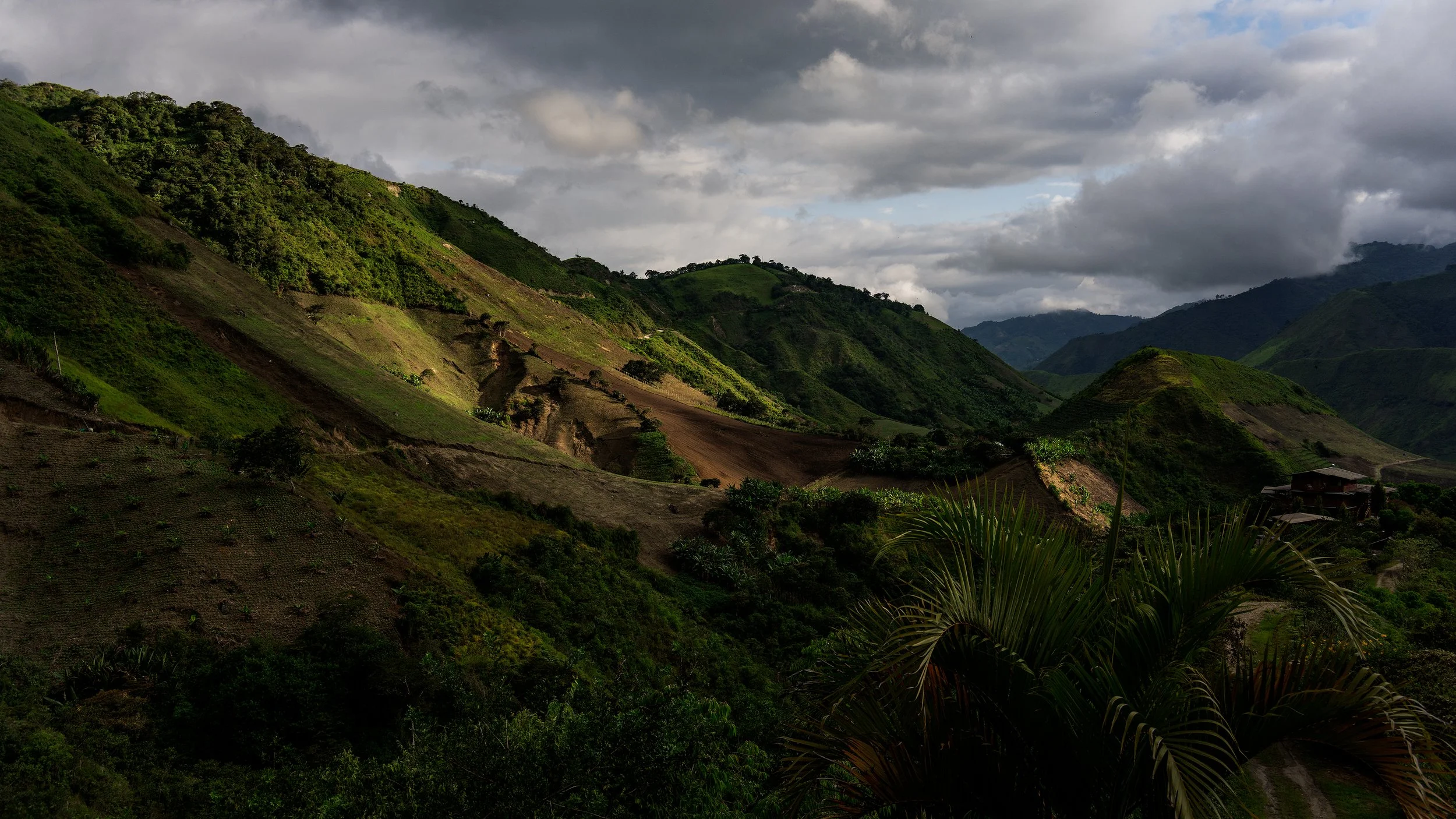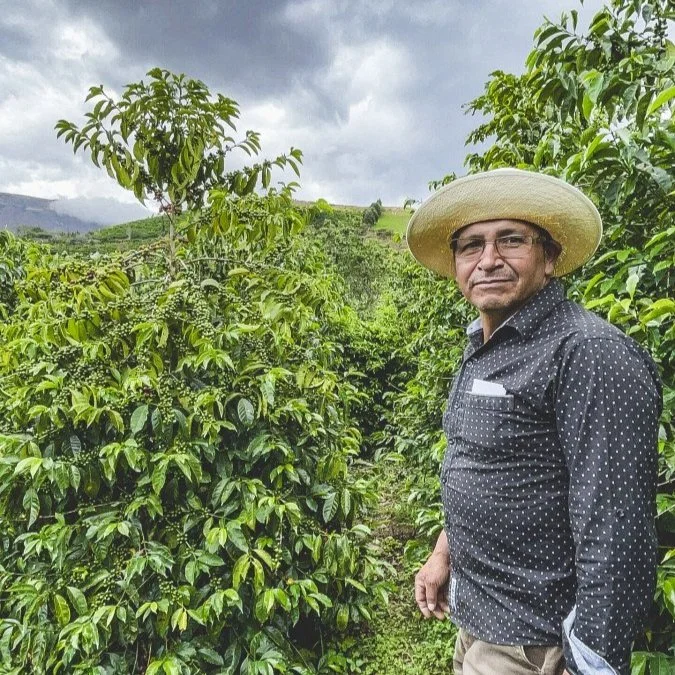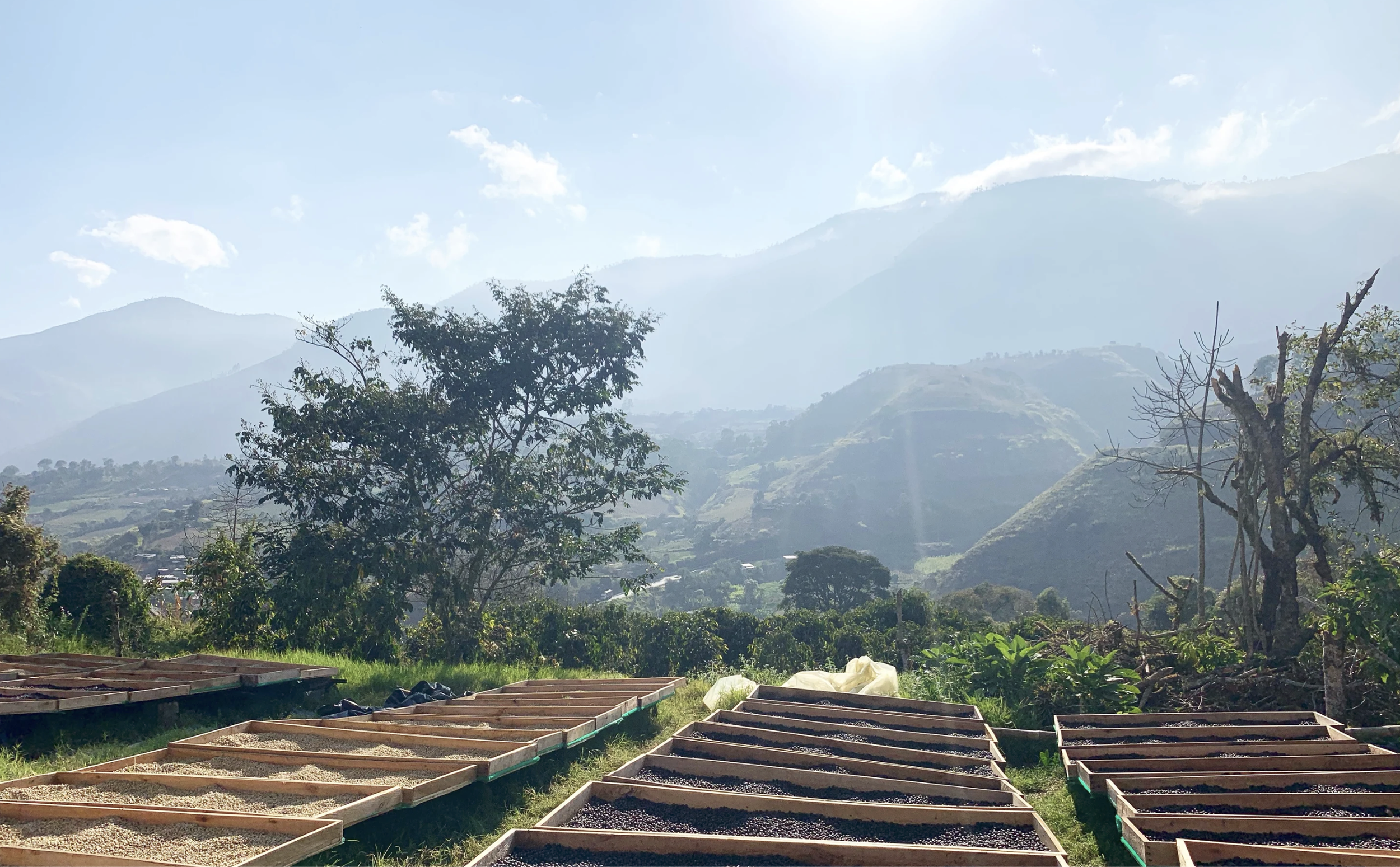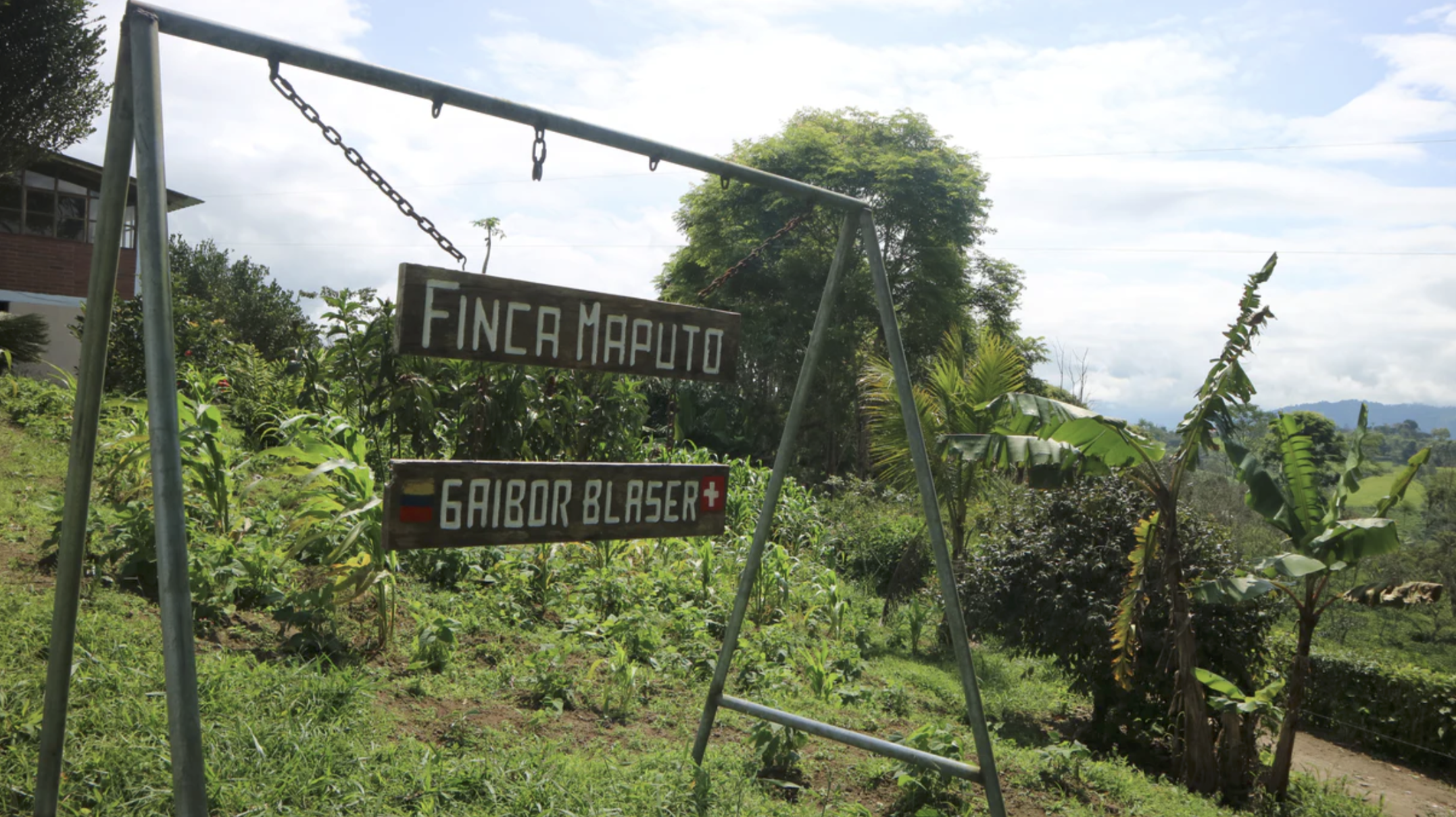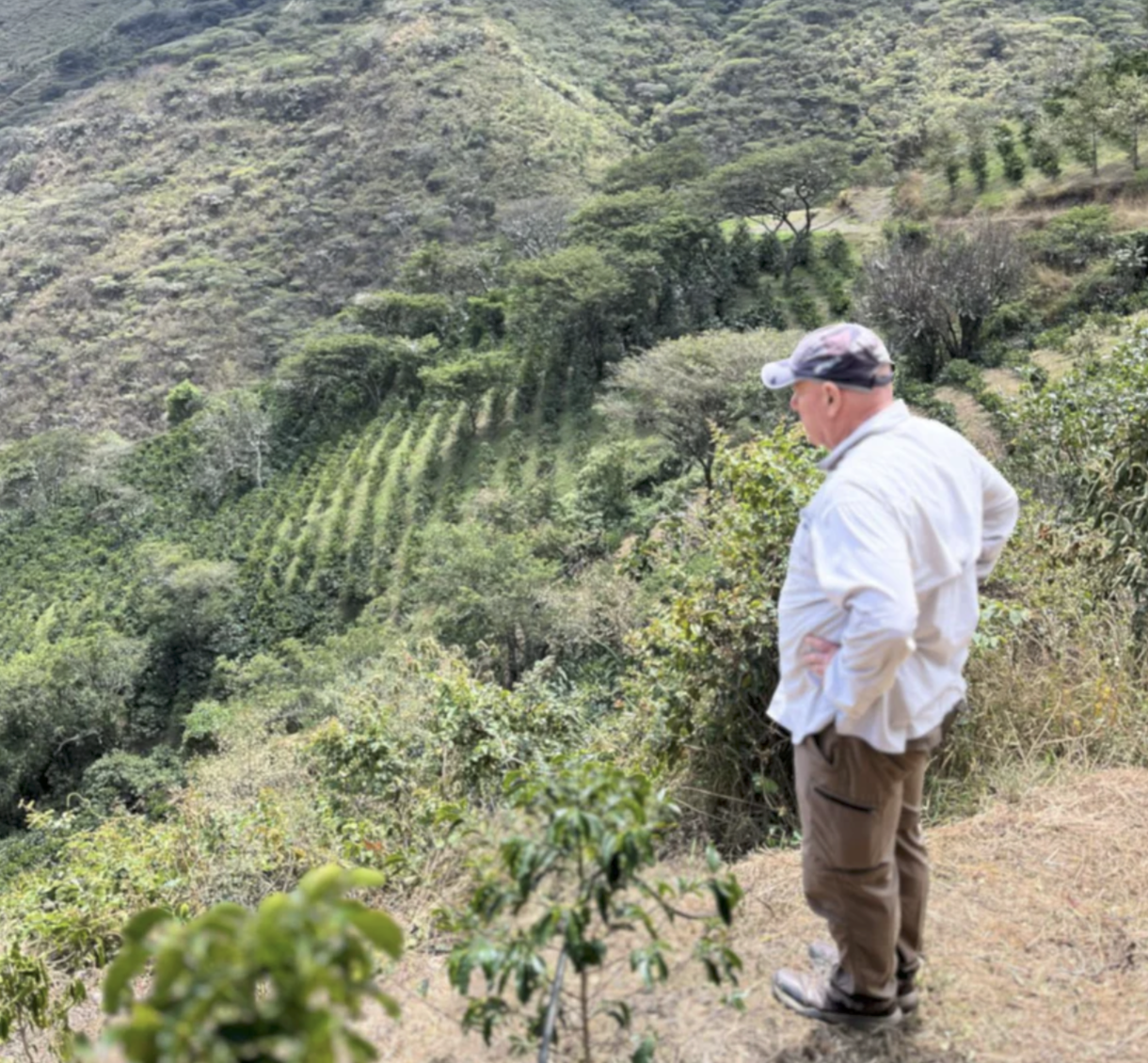Modern specialty coffee guide: Ecuador
This page is in a draft state. Stuff is incomplete, incorrect, missing, broken; it’s not intended to be publicly visible, but if you made it here, good on ya! :D
In the specialty coffee scene, the popularity of coffee from Ecuador has exploded in the past few years. Ecuador had experienced a collapse in coffee production, with a fraction of farms managing to restructure and rebuild through the 2010’s. With considerably higher minimum wages for coffee cherry pickers and comparatively less economic incentive to pump out high volumes of commodity grade coffee, coffees from Ecuador are among the highest hit rate coffees if you can find it.
Generalized characteristics of specialty coffee from Ecuador:
Typica mejorado is the staple of modern Ecuadorian specialty coffee. An F1 hybrid traced back to Nestle facilities in Ecuador, its genetic identity is under question and currently not thought to be a typica at all, rather a hybrid of bourbon and Ethiopian landrace varietals. Not a typica at all.Oops.
Patterns:
Intense sweetness
Red fruit, currants, stone fruit, malic notes
Sidra is another varietal of Ecuadorian heritage. Considered to be a cross between typica and bourbon, but is genetically identified as an Ethiopian heirloom, it caught popularity among competition routines in the late 2010’s to early 2020’s.
Patterns:
Intense peak acidity, such as grapefruit, blood orange, tropical
Can veer towards konbu-like umami if the acidity is not tamed
Herbal-forward sense of florality, too zesty for some
Geshas round out common varietals among high end specialty offerings
Common specialty varietals like caturra and catuai exist, but are less common among specialty offerings
Washed processing is the more common process among higher end specialty coffee from Ecuador
New, interesting, or exciting stuff in Ecuadorian coffee to pay attention to:
SL28, the bourbon cultivar usually associated with Kenya, can be found planted in some Ecuadorian farms such as Hacienda Saint Gertrudis
Interesting processes are being explored, such as oak barrel fermentation at Hacienda La Papaya
Cold fermentation has been gaining traction to minimize the “funk” that can come out of fermentation, like at Finca Soledad
Shockingly clean versions of carbonic maceration processed beans, often indicating overfermented flavors, have come from Hacienda la Florida
Lugmapata has a seemingly new cultivar, tentatively referred to as L1
A ridiculously low altitude domestic robusta was grown at 40MASL by Hacienda Legrand
Coffee is grown on the Galapagos Islands at 2-300MASL, but currently seems to be more of a novelty than pursuing maximal flavor outcomes.
Roasters that tend to have offerings from Ecuador:
Coffea Circulor, Hydrangea, Ilse, La Cabra, Moonwake, Picky Chemist, September, Sey, Shoebox, Standout
*Availability is limited to harvesting calendars and when green coffee arrives to a roastery at the speed of air or ocean freight
** Not limited to this list. These happen to be the first that come to my mind and limited to 10.
Growing regions in Ecuador:
-
Finca Eucaliptos - Felipe Luzon
Finca La Josefina - Ligia Merizalde and Leopoldo Andrade
Finca Maputo - Henry & Verena Gaibor
Finca Nueva Esperanza - Juan Pablo Malacatos
Finca Putushio - Jose Jijon, Francisco Vintimilla, Pepe Jijon
Finca Santa Rosa - Galo Semblantes
Finca Terrazas del Pisque- Arnaud Causse
Hacienda La Florida - Fabricio and Ramiro Coronel Pilco
Finca Arashi - Abel Salinas
Farm name: Finca Arashi
Producer: Abel Salinas
Region: Saraguro, Loja
Elevation: 1890-1,924 MASL
Varietals: Typica Mejorado
Processes: washed
From Coffee Quest:
Abel’s parents were farmers for as long as he can remember. He grew up surrounded by fertile lands, but also around adversities, which his family always overcame together (values that he carries with him nowadays).
Working as a miner in the Costa region around the year 2000, he had to return to his natal farm due to a surgical intervention, where he dabbled into cattle and fruit production. It wasn’t soon after, encouraged by the success of a local producer, that he planted his first coffee trees — February 2016 to be exact, he remembers — and from there, it became the canonic event into his Specialty Coffee Quest (pun intended).
The rest is history and nowadays Abel Salinas is renowned in the region of Loja, winning Ecuador’s 2021 Cup of Excellence! This will mark the first year of us working together, but with his dedication and cup quality, we know it won’t be the last!
Abel Salinas is a first-generation coffee grower in Saraguro, southern Ecuador, and a key figure in the town’s rise as an origin of exceptional coffee. Alongside neighboring farmers who transitioned from cattle production to coffee cultivation, Abel planted the Typica Mejorado cultivar and began experimenting with innovative post-harvest processing methods. His efforts quickly earned recognition, including a historic first-place prize at Ecuador’s first Cup of Excellence competition. This coffee is brimming with fruit complexity—sweet nectarine and bright blood orange flavors give way to more tropical fruit tones as the cup cools.
Finca Cruz Loma - Galo Morales
Farm name: Finca Cruz Loma
Producer: Abel Salinas
Region: San Jose de Minas, Pichincha
Elevation: 1450MASL
Varietals: caturra, gesha, sidra, tabi, typica mejorado
Processes: anaerobic washed, honey, hydro honey natural, washed
From Coffea Circulor:
A short distance north of Quito, in the community of San José de Minas, a small town in the northwest region of Pichincha, Galo Fernando Morales Flores, his wife Maria Alexandra Rivera and other members of his extended family cultivate coffee on their 350-hectare plot. In addition to coffee, the family also grows guanábana (soursop), corn, beans and a profusion of citrus on their farm, Finca Cruz Loma, which is described as a paradise with a temperate, tropical climate that supports a huge variety of flora.
From Coffee Quest:
Finca Cruz Loma is a family-run farm located in San Jose de Minas, Pichincha, Ecuador. Managed by siblings Galo and Grace Morales, the farm is approximately 300 Ha in total and each sibling has land, growing different crops. In the case of Galo, he also grows sugar cane, cacao and trees for lumber and Grace also grows corn (which is her main crop). Coffee is produced on a total of 6 Ha (with 4 Ha currently in production) and 1,450 m.a.s.l., where they grow Typica Mejorado, Sidra, Caturra, Tabi and a small amount of Geisha (in a mixed lot).
For the Morales family, the plan for coffee started about 4-5 years ago, when they planted approximately 8 Ha of coffee. However, due to lack of experience, poor management, being busy with their other full-time jobs, etc., they lost most of it and only remained with approximately 2 Ha of coffee! But from the 2 Ha of coffee that remained, they knew they had quality because they were scoring high in various competitions. From there, they decided to revamp the plan and put more focus into the coffee. Initially, it was Galo taking the responsibility, but with all of those learning curves, he decided to then involve his sister Grace, an agronomist by trade.
Whilst she is still focused mostly on corn, she is currently the manager of the farm and oversees the coffee production. This partnership has paid off, as well as Grace’s nutrition plan; their focus in fertilization is not only for production, but also for uniform maturity of the cherries. This makes it easier for the pickers and therefore, will naturally offer a better quality coffee on the cupping table.
Between February and March, they have a very tiny harvest which they use to do different experiments across the finca; different levels of de-pulping, fermentations, naturals, honeys, etc. From there, every nano-lot is analyzed and cupped in the lab and the experiments that perform best, are then processed in bigger volumes during the harvest.
From Manhattan:
Cruz Loma is a family-run, award-winning farm that has been producing coffee for over 20 years. It is only in the last 6 years that it started focusing on specialty coffee. Galo Morales is a former technician for Caravela, where he gained much-valued experience which is now focused on his coffees and farm. Along with his wife, Maria Alexandra, they run a pioneering farm in Ecuador!
Cruz Loma has been well-awarded for their efforts and contributions to specialty coffee. Some of their accolades include 1st place in Taza Dorada 2021 and 3rd place in Cup of Excellence 2022.
Finca Eliza - Martin Kutsch
Farm name: Finca Eliza
Producer: Martin Kutsch
Region: Loja
Elevation: 1740MASL
Varietals: gesha, typica mejorado
Processes: anaerobic washed, natural, washed
From Proud Mary:
Nestled in the serene highlands of Loja, Ecuador, lies the charming Eliza Coffee Farm, a labour of love curated by Martin Kutsch and his daughters since 2016. Martin's journey into the world of coffee began with his fondness for a good cup, eventually evolving into a deep appreciation for specialty brews during his travels to Boquete, Panama. Captivated by the magic of the bean, Martin and his friend Bernard Uhe embarked on a quest to uncover the secrets of cultivating exceptional coffee.
Their adventures in Boquete opened a world of possibilities, leading them to source the finest specialty coffee seeds to plant on the fertile grounds of Eliza Farm. Overseeing the farm's operations is the experienced CVM family, hailing from a long line of coffee growers in Ibague, Colombia. Their collaboration with local experts harnesses the unique essence of the Ecuadorian Andes, resulting in a blend of tradition and innovation.
What makes Eliza's coffee stand out is its natural environment—a blend of high altitude, rich soil, pure mountain water, and nurturing shade trees. Coupled with sustainable farming practices like the use of neem and worm tea, the coffee plants flourish, producing beans that embody the essence of their surroundings.
Eliza Farm cultivates three distinct varieties: the delicate Green Geisha, the robust Borbon Sidra, and the classic Tipica Mejorada. Each variety contributes its own character to the cup, reflecting the terroir and the dedication of those who tend to it.
From Standout:
Finca Eliza is managed by the Colombian-Ecuadorian team at CVM (ChocoVilcaMundo), led by Bernard Uhe. The farm sits in the Andes of southern Ecuador and is home to some of the region’s most promising high-elevation micro-lots.
In 2023, Finca Eliza placed 10th in the Cup of Excellence with a Washed Anaerobic Gesha. Another CVM farm, Finca La Noria, took 1st place with a Washed Gesha.
From Obadiah:
Finca Eliza, nestled in Loja, Ecuador, was acquired by Martin and Bernard in 2016. They swiftly planted coffee seeds, cultivating three prized varietals: Geisha, Sidra, and Typica Mejorado. Renowned for its excellence, the farm secured 10th place in the 2023 Cup of Excellence with its anaerobic washed Geisha.
Factors contributing to this success include the high elevation, fertile soil, mineral-rich mountain water, and abundant year-round sunlight lasting 12 hours daily.
We've chosen an anaerobic washed Typica Mejorado, offering melon sweetness and a silky, creamy finish.
Finca Eliza operates under the umbrella of Choco Vilca Mundo, an Ecuadorian agricultural enterprise owned by Bernard Uhe and his coffee-growing family from Colombia.
For this lot, ripe red cherries are selectively harvested. The coffee undergoes washing and floating, followed by fermentation in bags for 48 hours with regular turning every 12 hours.
After fermentation, the cherries are pulped and undergo another 48-hour fermentation period. Finally, the parchment is meticulously washed in tanks to complete the process.
Finca Eucaliptos - Felipe Luzon
Farm name: Finca Eucaliptos
Producer: Felipe Luzon
Region: Palanda, Zamora-Chinchipe
Elevation: 1600MASL
Varietals: Typica Mejorado, Nestle F1, Typica
Processes: washed
From Coffee Quest:
Finca Los Eucaliptos is located in Palanda, Zamora-Chinchipe, Ecuador, and is managed by Felipe Luzon, a second-generation coffee grower. The farm consists of 6 hectares of land, sits at an elevation of 1,600 m.a.s.l, and has around 18,000 coffee trees in production: mainly Typica Mejorado, Nestle F1, and traditional Typica (Criollo).
This Typica Mejorado lot begins its process by hand-picking the ripest cherries, floating them, and washing them with clean water. After rinsing, the coffee is de-pulped and left to ferment in sacks for upwards of 60 hours (though Felipe has been experimenting with varying hours of fermentation, with some lots reaching 90+ hours!). The coffee is then dried in a greenhouse structure for between 15-20 days, depending on the weather.
Thanks to his parents, Felipe has always been passionate about coffee. He planted his first trees when he was 8 and harvested his first cherries when he was 12. Coffee has been a crop that has consistently generated income for his family and for that reason, he takes great care and pride in his production.
Approximately 5 years ago, he joined “Recambio Generacional”, a project promoted by an association of producers that he belongs to in the region. The project was designed to incentivize younger producers to plant more coffee. Within this project, he received the first 7,000 seedlings of Typica Mejorado. Seeing results in the first trees, he then planted an additional 7,000 trees.
In addition to all of the above, Felipe hopes to grow the farm and plant an additional 4,000 trees of Typica Mejorado this year. 2023 will mark our third year working with Felipe and we are extremely excited to continue this relationship!
From Sey:
Thanks to his parents, Felipe has always been passionate about coffee. He planted his first trees when he was eight years old, and harvested his first cherries when he was 12. Because coffee has always been a crop that has generated income for his family, he takes great care and pride in its production. He first planted 7,000 Mejorado trees, and after seeing the quality potential and excellent results from those trees, he now has 14,000 of them. As such, we should start seeing a much larger production from Felipe in the next few years.
From Cafe Imports:
Located in the fertile lands of Palanda, in the Southern Amazon of Ecuador, Felipe Luzón’s coffee farm is a beacon of tradition and innovation. Palanda, renowned as the birthplace of cocoa, is also emerging as a key region for exceptional coffee cultivation, thanks to its highly productive soils and ideal growing conditions.
Felipe Luzón is one of the region's pioneering coffee growers, known for introducing improved and hybrid Typica varieties to the area. His dedication to quality and innovation has earned his farm recognition in the prestigious Bracamoros Regional Coffee Competition, where he has secured notable positions.
As Palanda continues to develop its reputation as a dual hub for cocoa and coffee, Felipe Luzón remains at the forefront of coffee excellence. In 2025, he plans to implement enhanced post-harvest processes with expert technical guidance, ensuring that the quality of his coffee continues to evolve and reach new heights.
Felipe’s farm exemplifies the harmonious blend of tradition and progress, cultivating not just exceptional coffee but also a legacy of excellence in the heart of Ecuador’s Amazon region.
Finca La Josefina - Ligia Merizalde and Leopoldo Andrade
Farm name: Finca Josefina
Producer: Ligia Merizalde and Leopoldo Andrade
Region: Cayambe-coca, Pichincha
Elevation: 1800-2000 MASL
Varietals: gesha, pacamara, pacas, pink bourbon, sidra, sudan rume, typica
Processes: Washed, anaerobic washed, natural, honey
From Vesta Coffee:
La Josefina is a farm owned by a couple, Ligia Merizalde and Leopoldo Andrade. The land is located within the Cayambe-Coca Natural Reserve, where there are around 3,500 individual species of animals and plants to be found. The couple grows several varieties on their land, including Pacas, Rume Sudan, Tekisic, Pink Bourbon, Pacamara,
Caturra, Gesha, and Typica. Microlots from Ecuador are sourced from independent specialty-coffee farmers and represent the highest quality and the highest level of traceability available.
Finca Lugmapata - Enrique Merino
Farm name: Finca Lugmapata
Producer: Enrique Merino
Region: Pallatanga
Elevation: 1700 MASL
Varietals: gesha, pacamara, pacas, pink bourbon, sidra, sudan rume, typica
Processes: Washed, anaerobic washed, natural
From Sey:
Enrique Merino has become one of our main producing partners over the eight years we have worked together. In 2016, his farm, Finca Lugmapata, placed 3rd in the Taza Dorada (Ecuador’s national coffee competition), and in 2017, he won 1st place. Enrique is a very dedicated producer, and is meticulous when it comes to farming and processing his coffees. Along with striving to produce the highest quality coffee possible, Enrique has developed a coffee nursery that he has made available to his entire local community to provide training and education on how to start producing high-quality specialty coffee. Finca Lugmapata is a pleasure to work with, and we are incredibly proud to have the opportunity to present their beautiful coffees.
ABOUT L1 (LUGMAPATA 1)
Several years ago, during one of our first trips to Lugmapata, Enrique told us he had purchased a sack of 'Gesha' seeds and planted an entire plot using seeds from that sack. It turns out the bag was a complete mix of random varieties, mostly Catimores (low cup score potential hybrids). However, as we walked through the lot, selecting cherries to taste at random, we discovered a cherry that tasted incredible, extremely tropical and sweet, and nothing like the other cherries, which tasted overly vegetal and lacked sweetness. We identified three more trees with the same profile and tied ribbons around them. Enrique has slowly collected seeds from those trees and planted a new lot using them. This lot is the first year of production from this new mystery variety. We have no idea what variety it is, but we have sent it in for genetic testing and will report back when we get the results!
Finca Maputo - Henry & Verena Gaibor
Farm name: Finca Maputo
Producer: Henry & Verena Gaibor
Region: La Perla, Nanegal, Pichincha
Elevation: 1350-1600MASL
Varietals: SL28, typica
Processes: Honey, washed
From Scenery:
A final Ecuador slipped into the sourcing calendar - we got the opportunity to feature this excellent lot from the esteemed Finca Maputo, who have successfully seen some podium finishes in the Taza Dorada (Best of Ecuador competition) as well as placing in the Cup of Excellence. Run by two retired Medicines San Frontières doctors, Maputo specialises in excellent honey processed lots, with plots growing H9, Sidra, Mejorado, and SL-28.
From Nossa Coffee:
The Farm
Finca Maputo is situated in Ecuador’s incredible 'cloud forests' of the Pichincha province, close in proximity to neighboring Colombia and on the equator. With the help of Café Imports, we were able to arrange an origin-trip for one of our baristas, Lucas Chemotti, who had the opportunity to document some of his trip in this post and brief accompanying video.
The Reigon
The area is known for its high humidity, abundant butterflies and is surrounded by rivers with hundreds of small waterfalls. A persistent fog hangs over the area, and the mist that usually covers the farm in the afternoon makes it feel as though you’re walking in the clouds.
The Farmers
Henry and Verena Gaibor, the co-owners and operators of Finca Maputo, met when working with Doctors without Borders in Burundi, Africa. Henry and Verena managed a clinic together in Maputo, Mozambique - the namesake of their future coffee farm.
The couple’s methodical, meticulous approach to coffee production has elevated their coffees to an exceptional level in a relatively short period of time, a true feat in coffee production. The Gaibors are not only dedicated to ensuring the high quality of their coffee, they also believe the most important element of coffee production is the human factor. They recognize the importance of their farm to the local community and their workers and strive to provide them with fair wages and safe working conditions.
Altogether, the Gaibors and their farm embody the values of Nossa Familia: great people, making great coffee, and giving back.
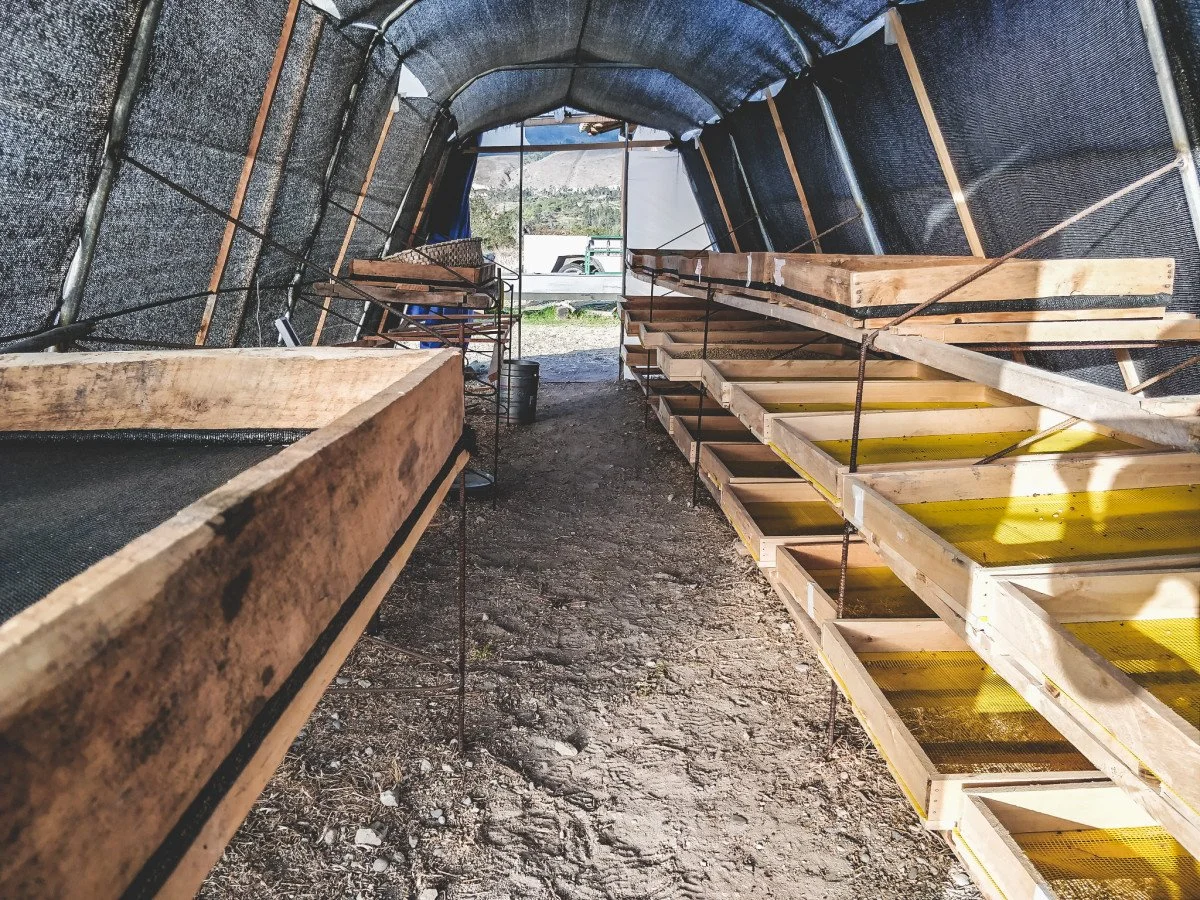
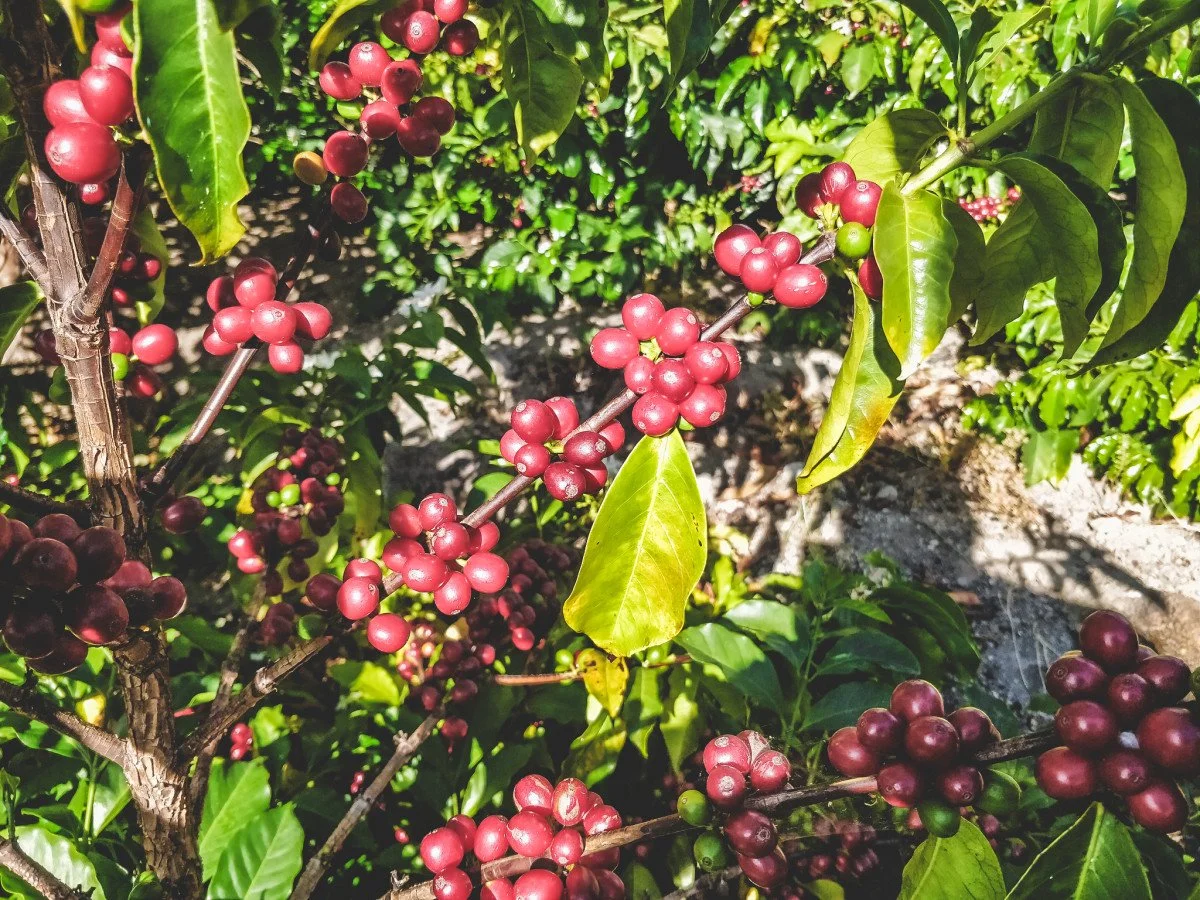
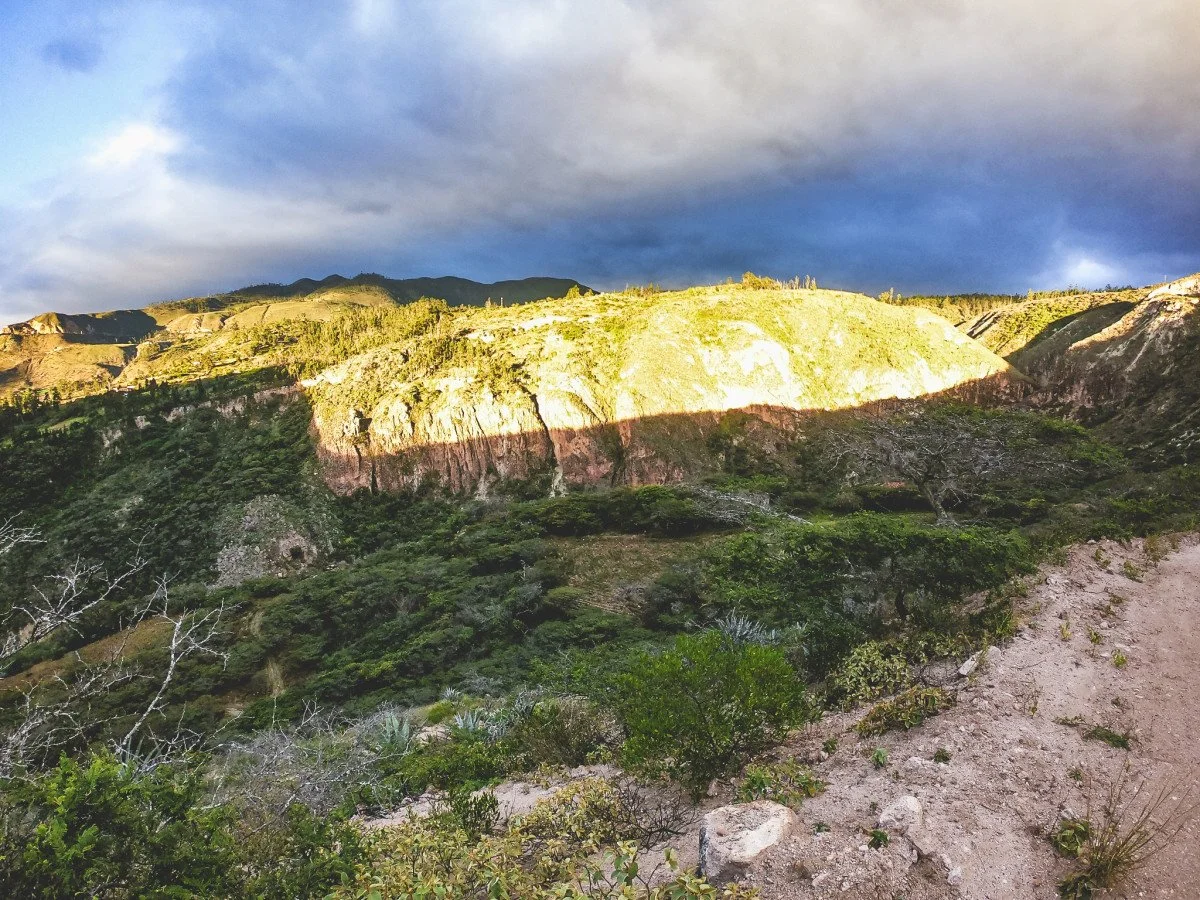
Finca Nueva Esperanza - Juan Pablo Malacatos
Farm name: Finca Nueva Esperanza
Producer: Juan Pablo Malacatos
Region: Palanda, Zamora-Chinchipe
Elevation: 1700MASL
Varietals: typica mejorado
Processes: washed
From Coffee Quest:
Juan Pablo is one of the youngest producers we work with, at 23 years of age! He grew up on this farm and has lived there his entire life. The farm is actually his parents’, but they gave him 2 Ha to work with and right off the bat, he decided to focus on specialty, starting with an exceptional variety! He planted these trees 4-5 years ago and this was his second real harvest.
Since his farm is only 2 Ha in size, Juan Pablo doesn’t need to hire any full-time employees. However, during the harvest, they do what is called a “minga” in Spanish, which means families from different farms rotate working on each other’s farms. The work is mostly related to picking, but could involve other harvest tasks.
In addition to coffee, Juan Pablo also grows plantains, bananas, citrus and other fruits. We met Juan Pablo through a neighboring farmer that we have worked with for multiple years now. However, 2023 marks the second year working with Juan Pablo and we are extremely excited about future harvests!
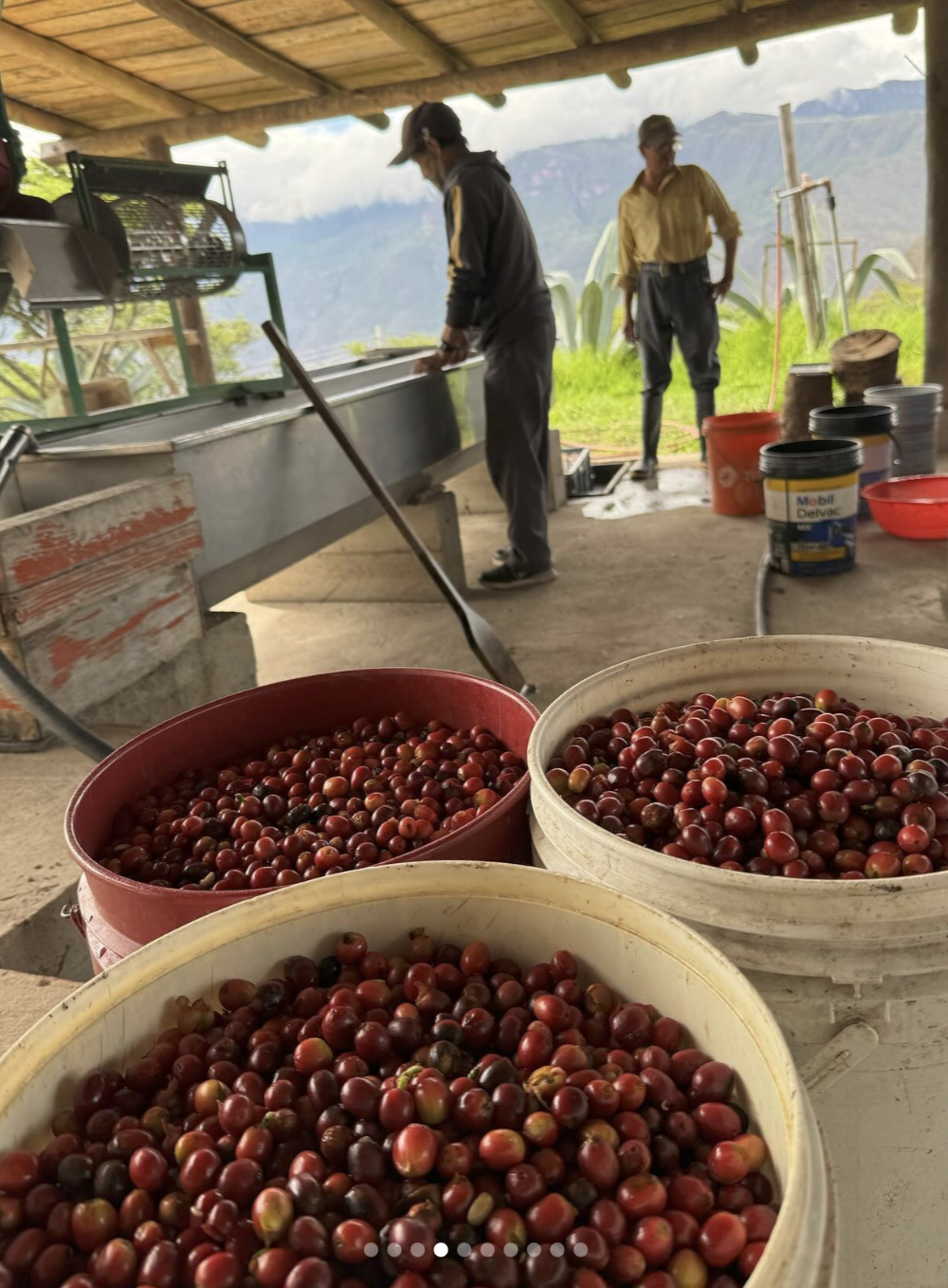
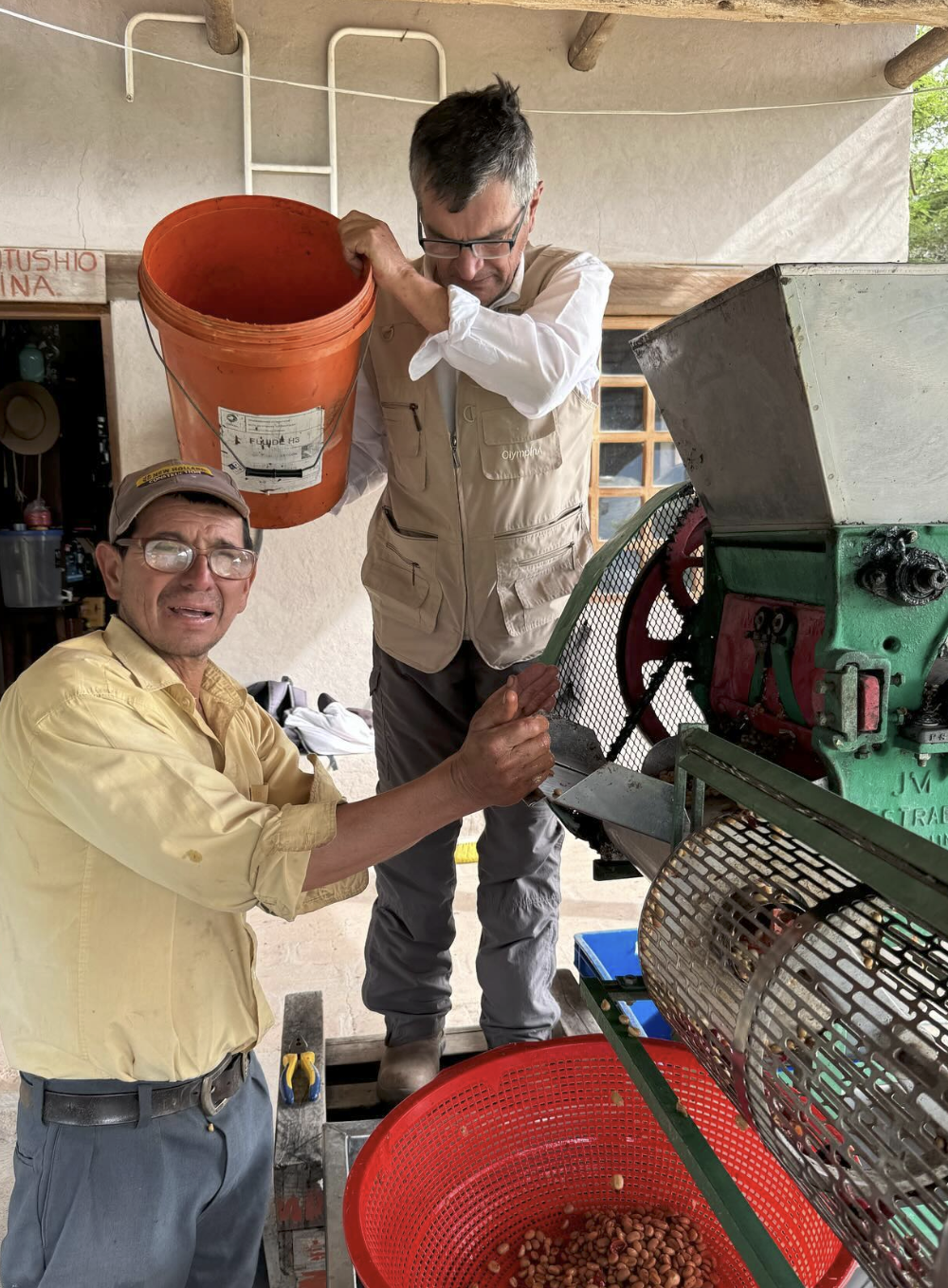
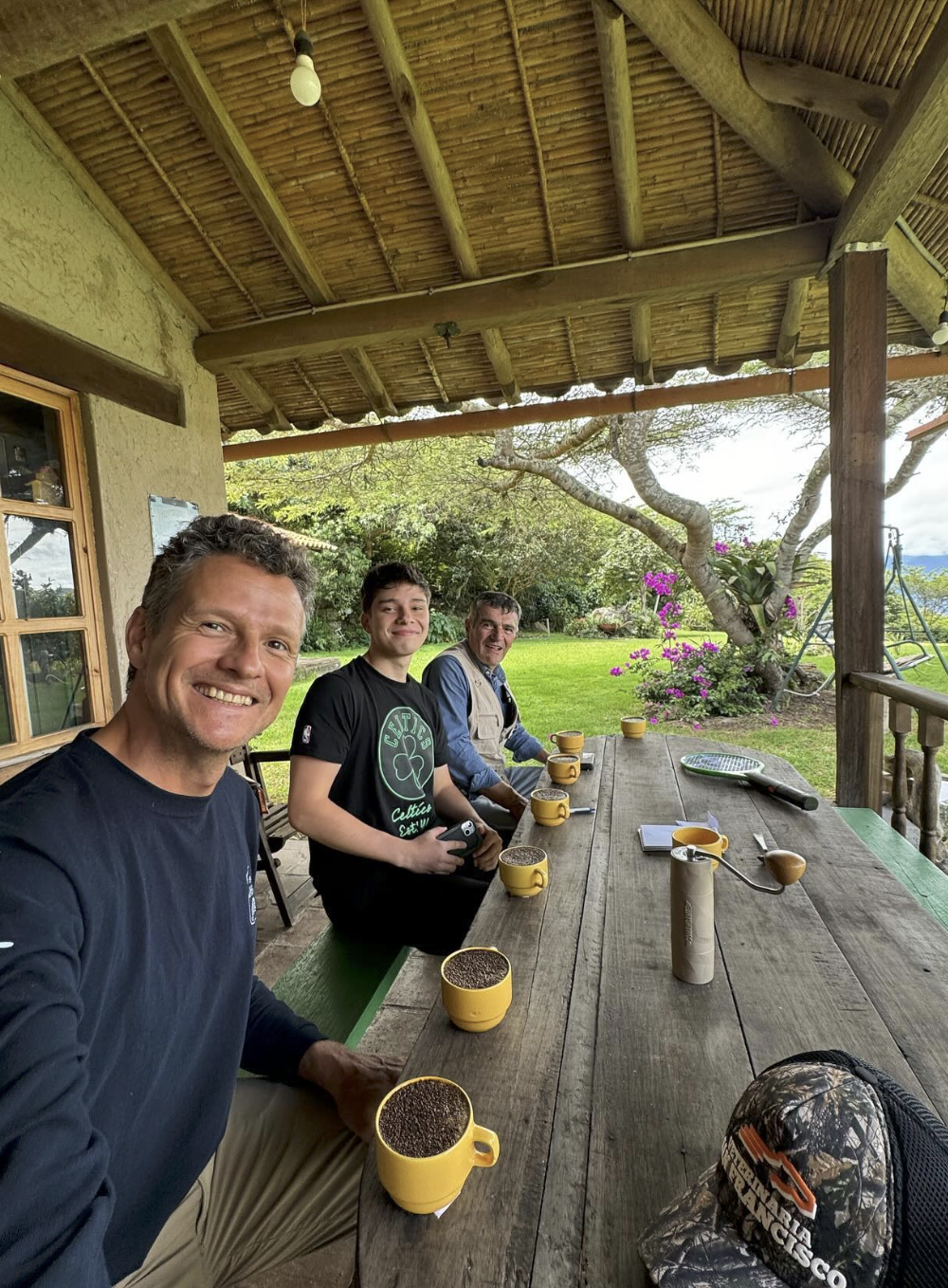
Finca Putushio - Jose Jijon, Francisco Vintimilla, Pepe Jijon
Farm name: Finca Putushio - covers Finca San Pedro and Finca Surya
Producer: Jose Jijon, Francisco Vintimilla, Pepe Jijon
Region: Loja
Elevation: 2222 MASL
Varietals: typical mejorado
Processes: washed
From Picky Chemist:
Fincas Del Putushio is a collaboration between José Jijón, his father Pepe Jijón, and Francisco Vintimilla. This lot was produced at Finca San Pedro, at high altitudes in the Loja region of Ecuador. The coffee is processed using the traditional washed method, which involves picking and depulping the coffee on the same day, washing it in fresh spring water, and then slow-drying it on covered raised beds for thirty days.
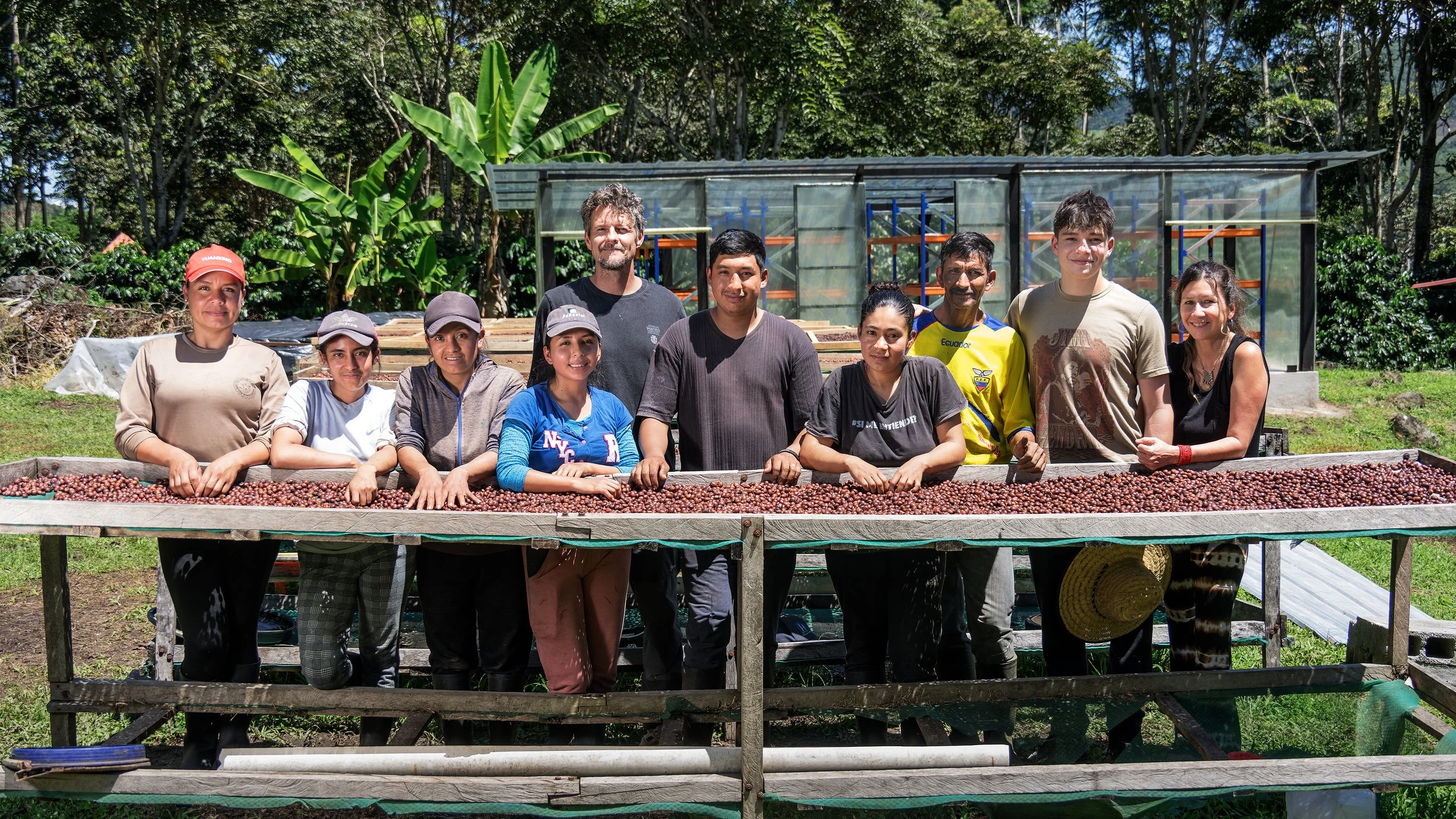
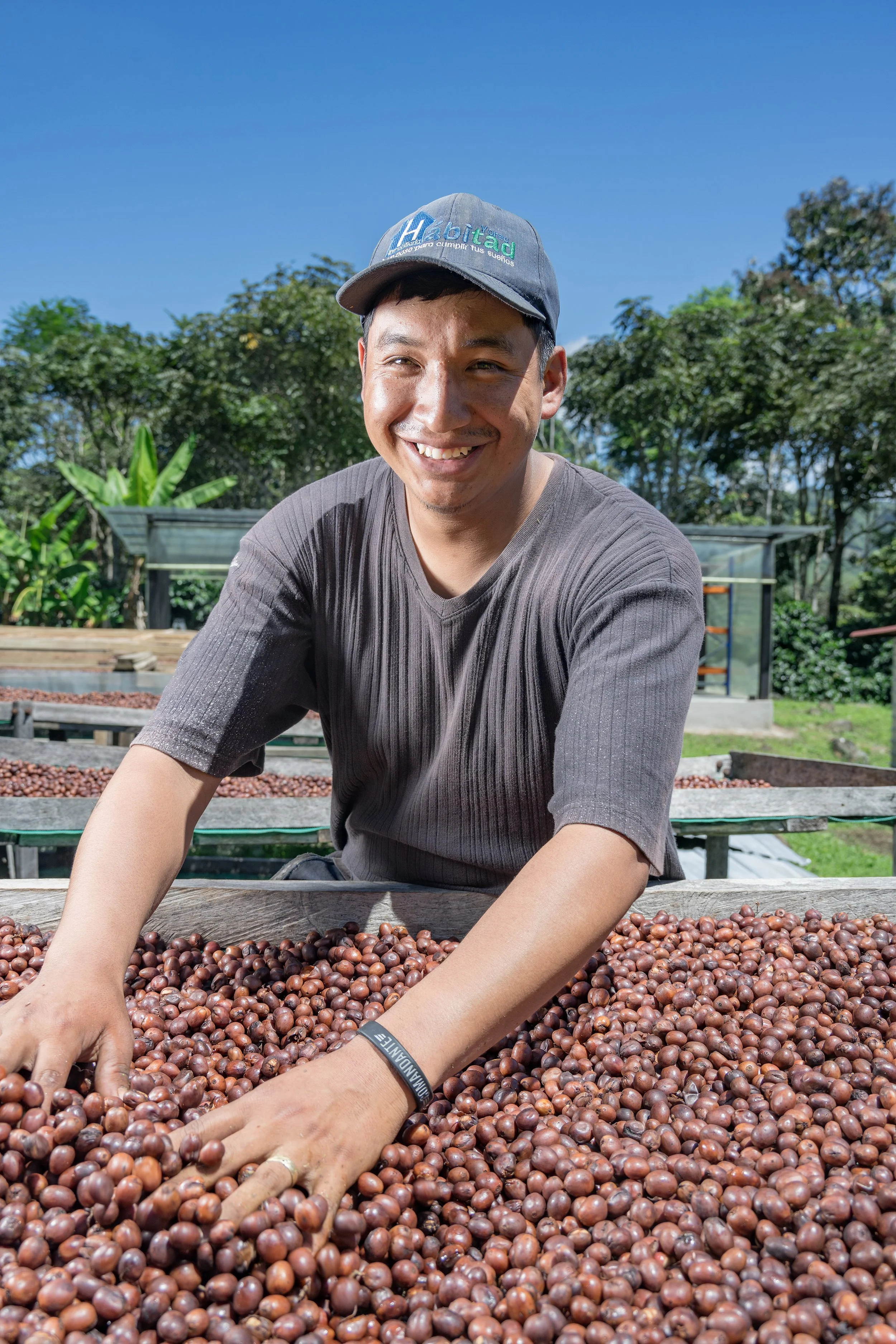
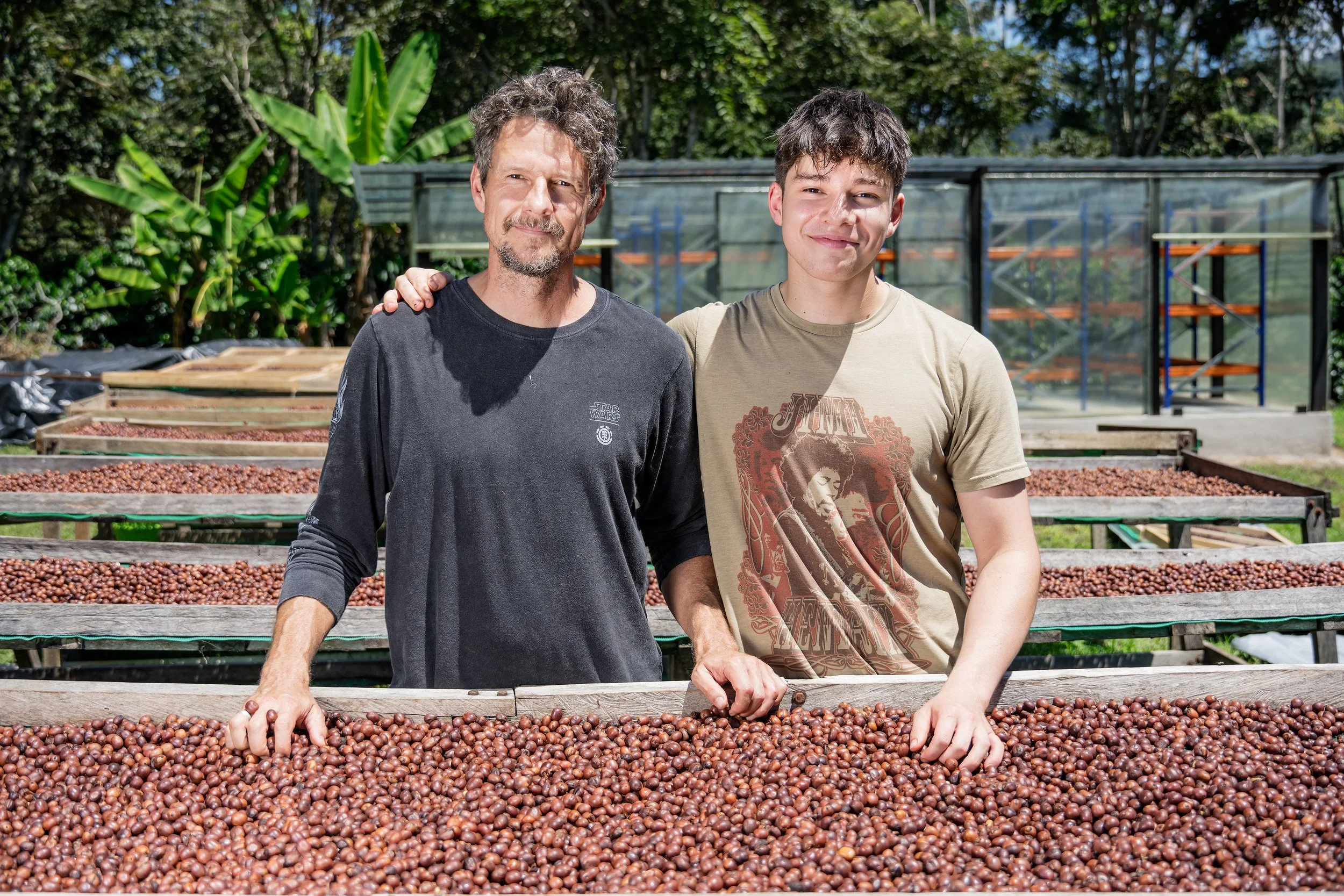
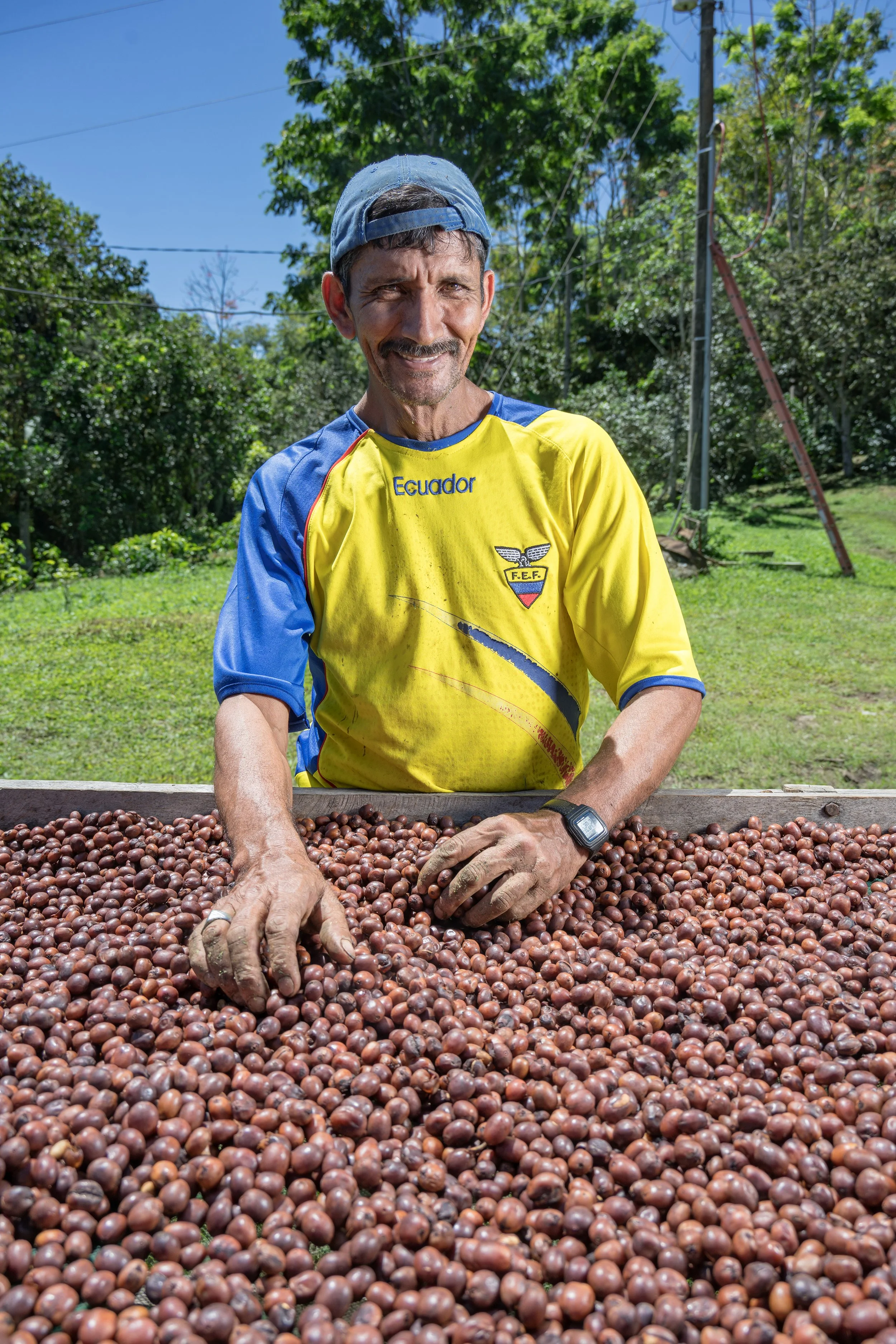
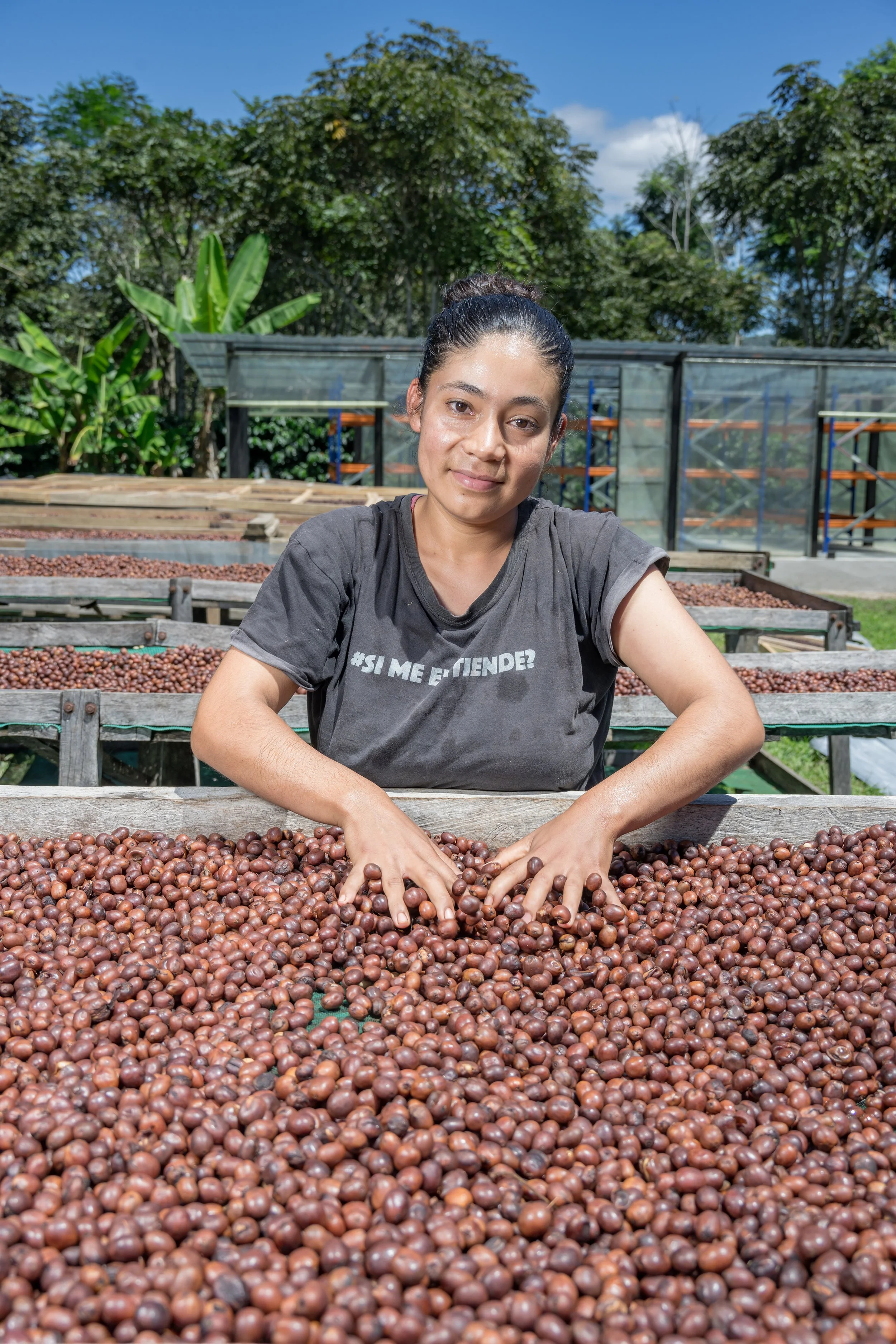
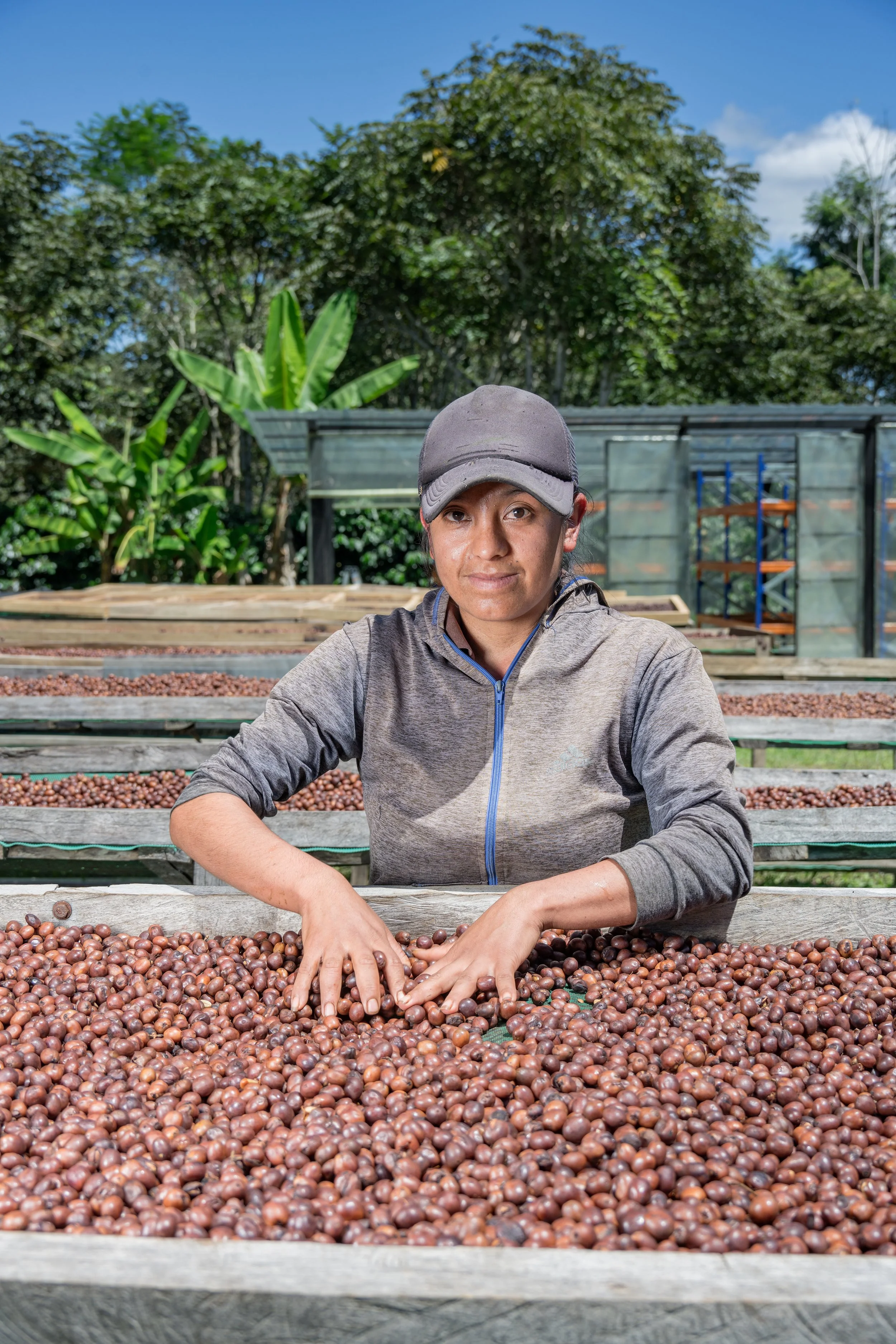
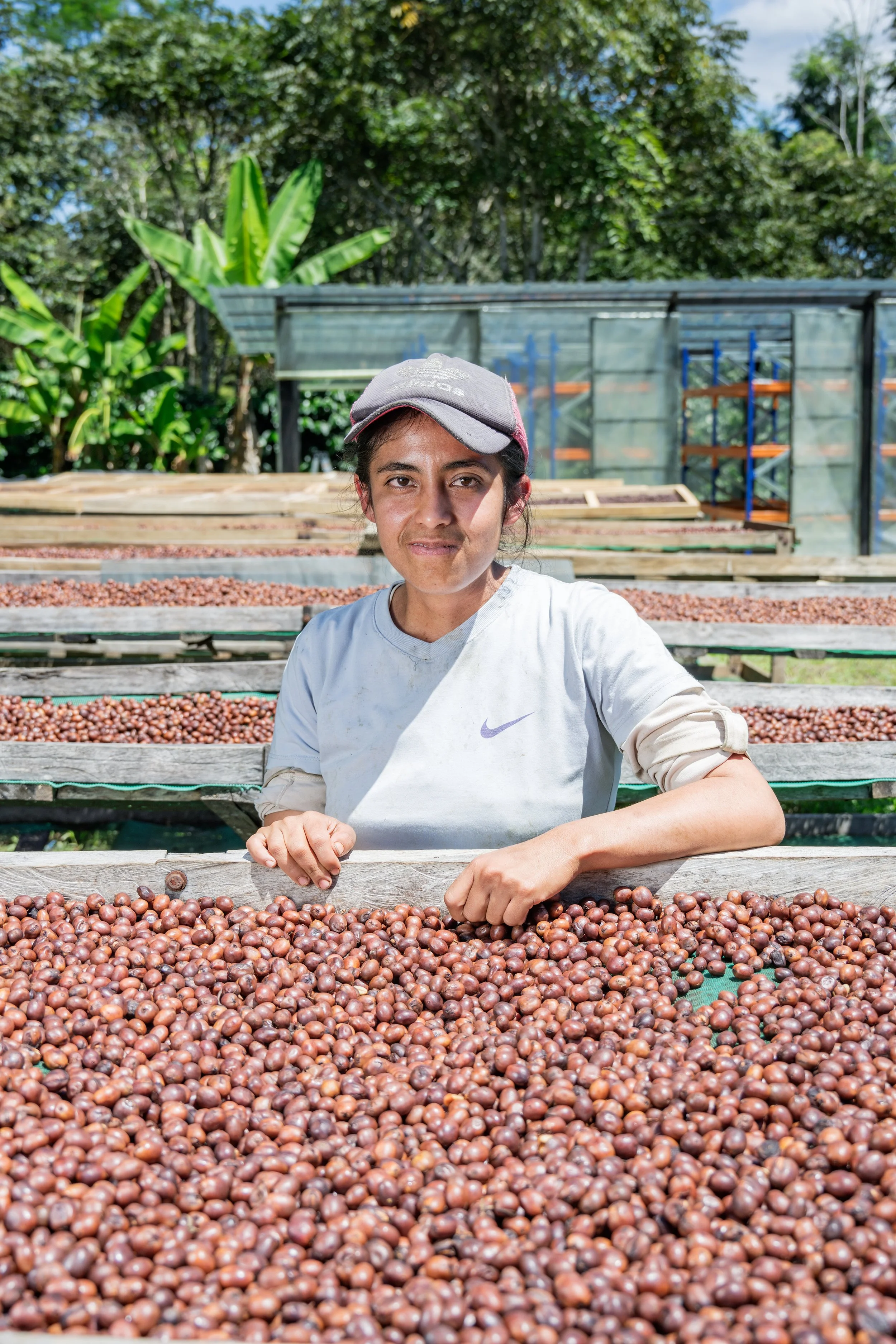
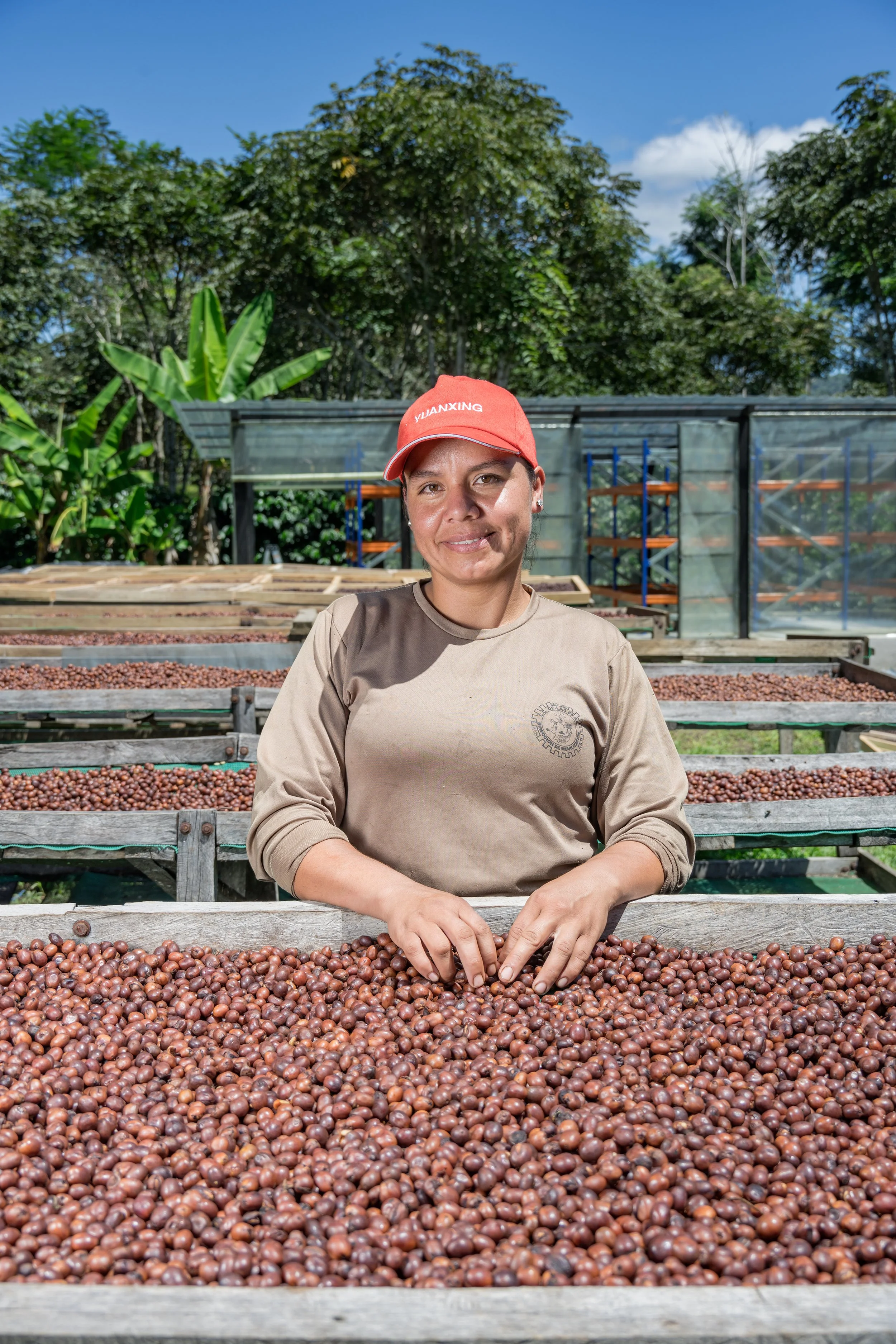
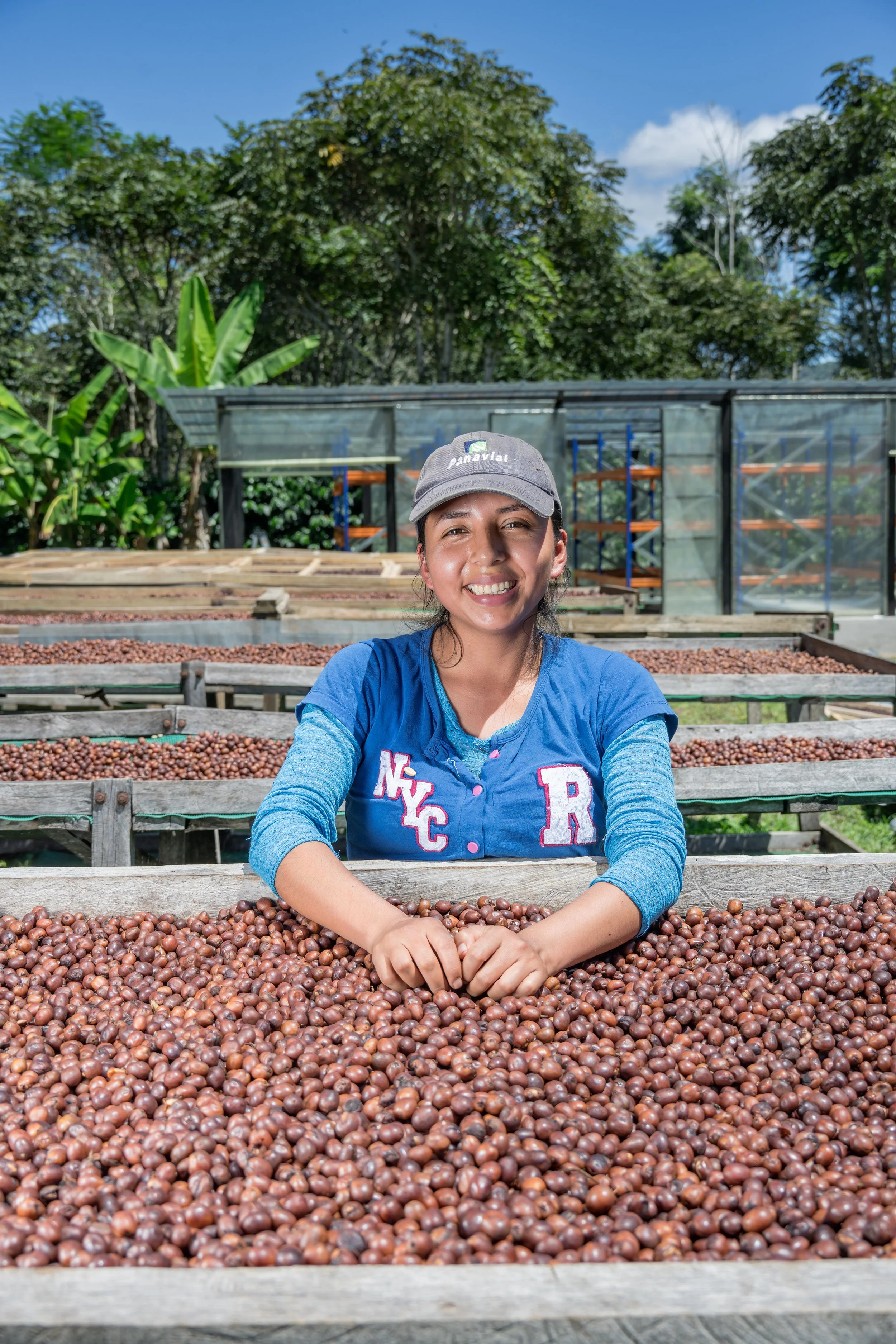
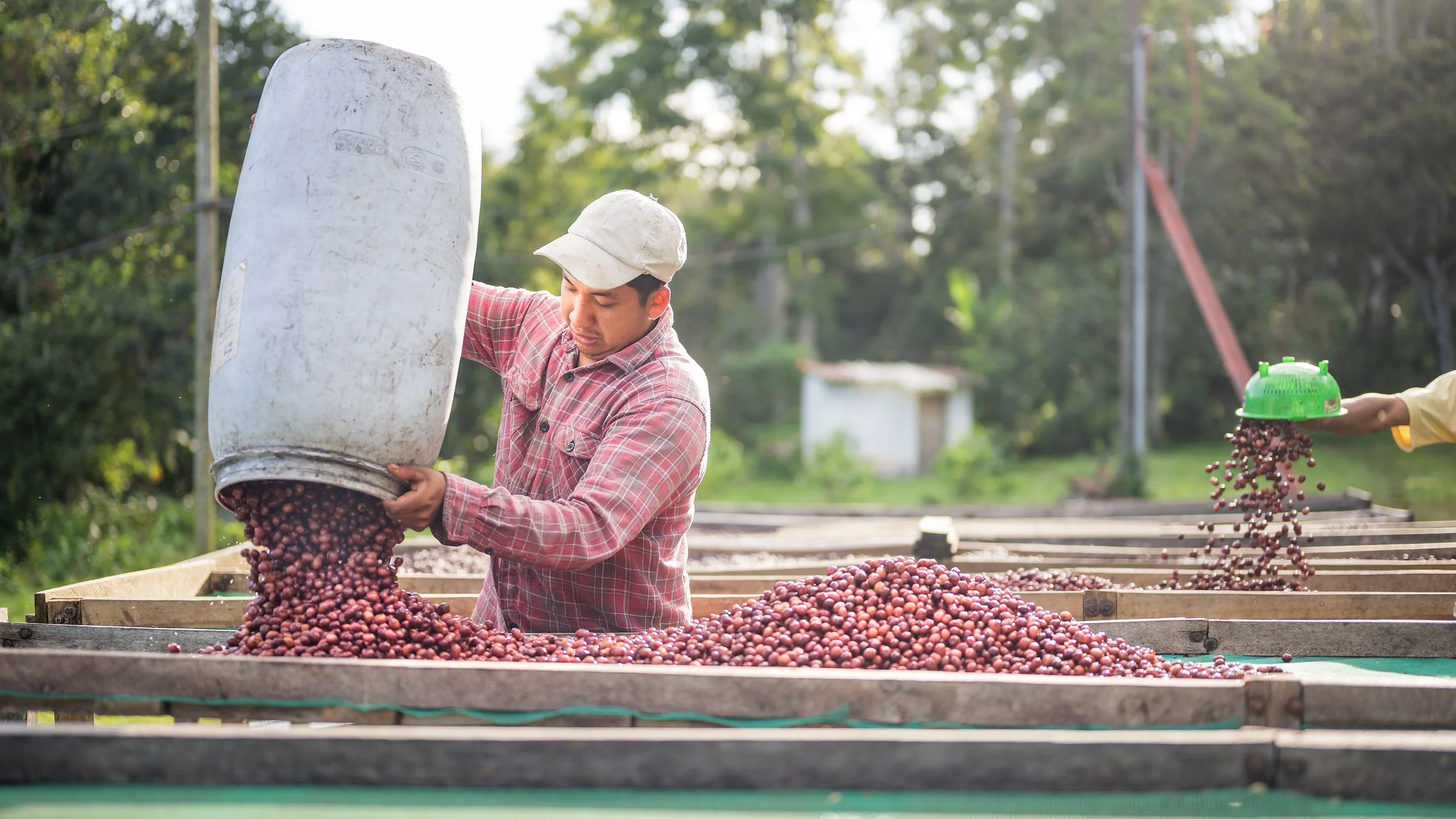
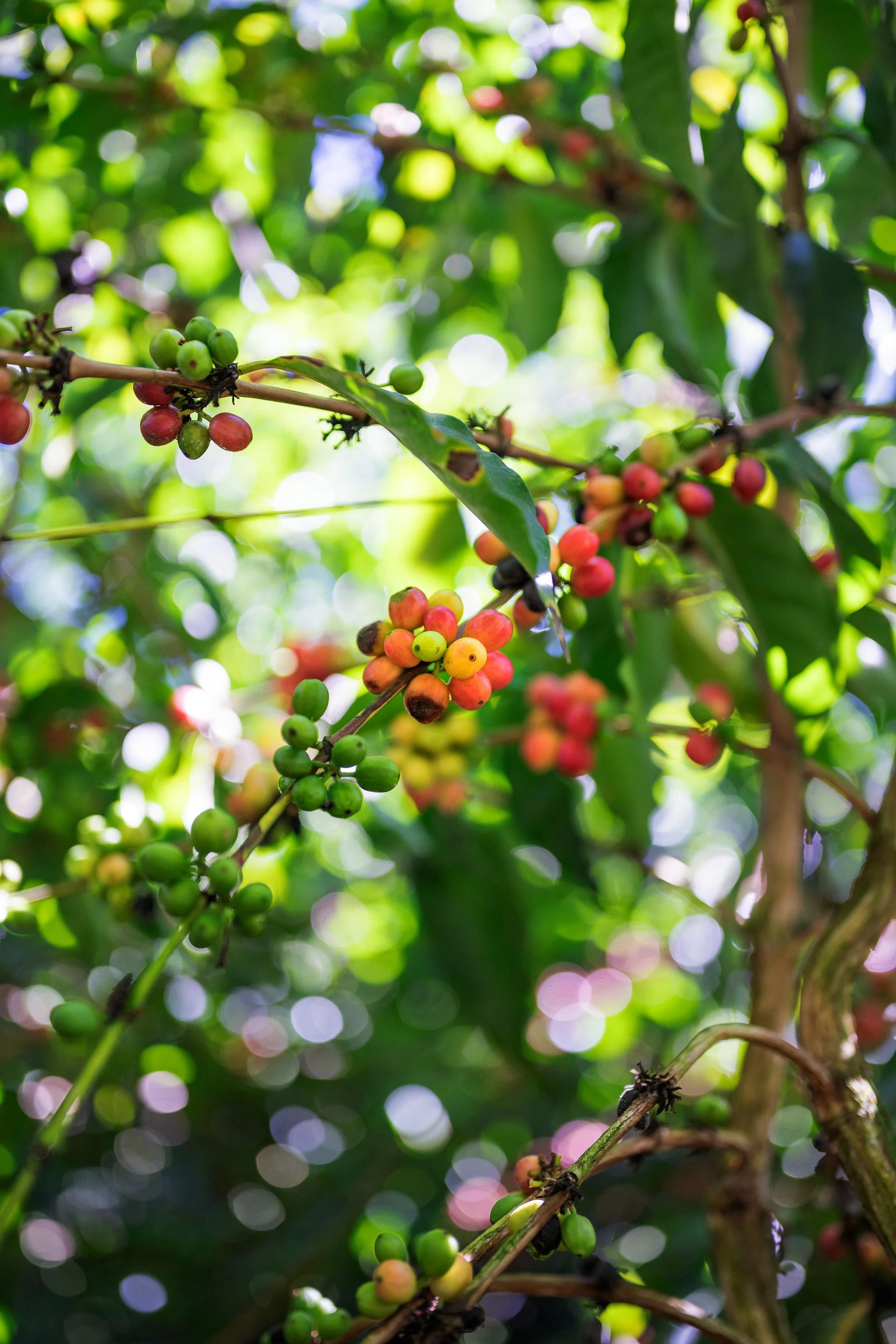
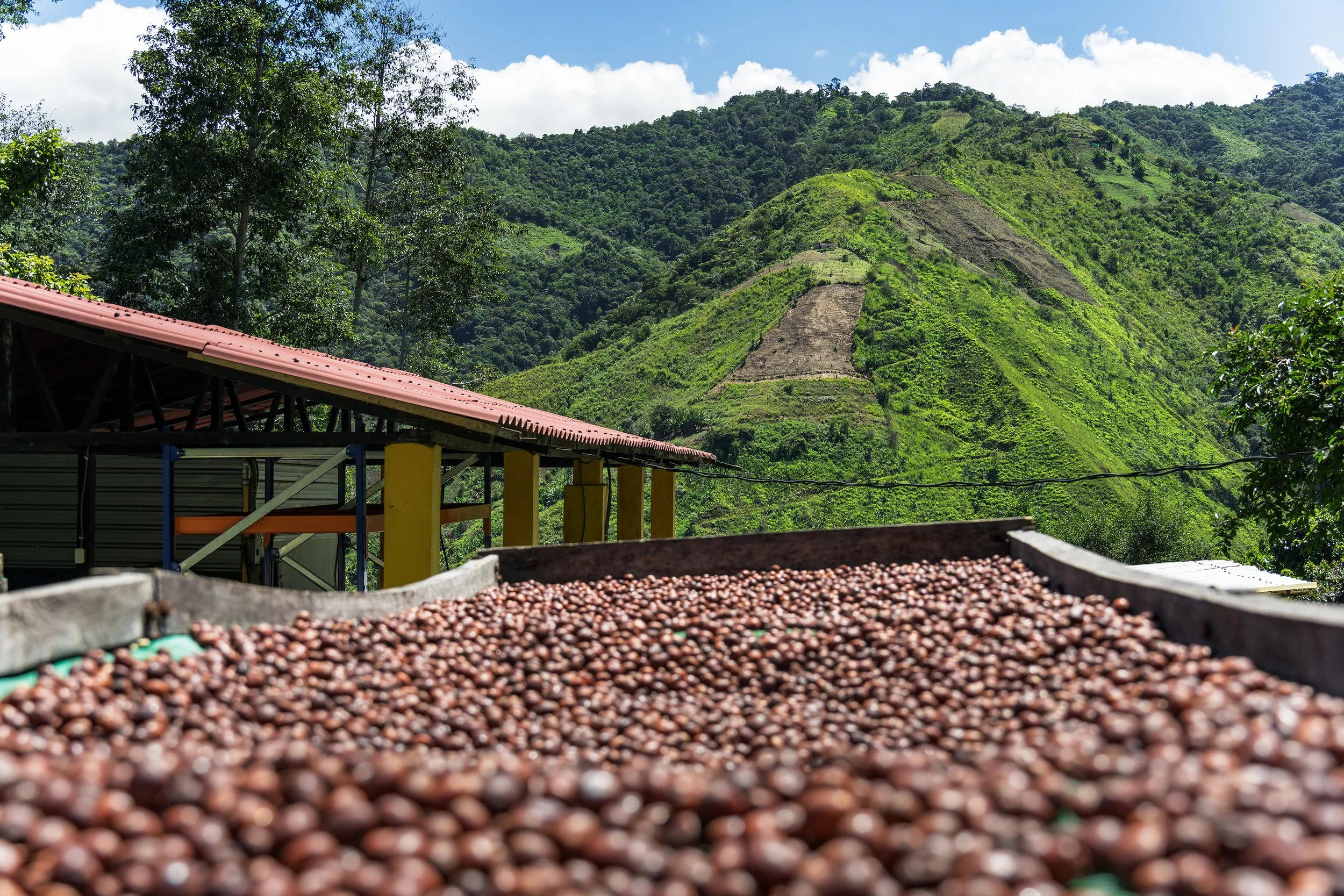
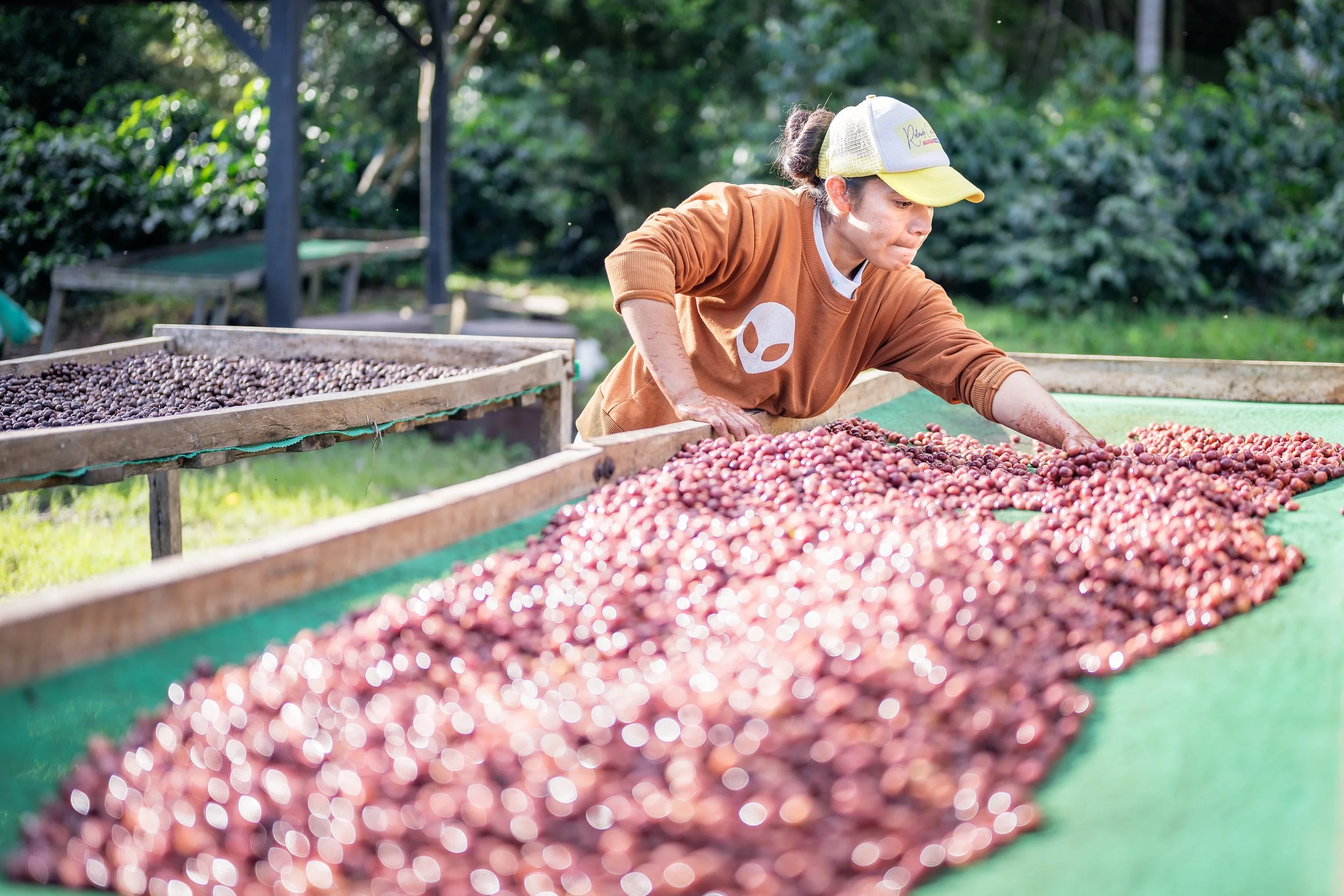
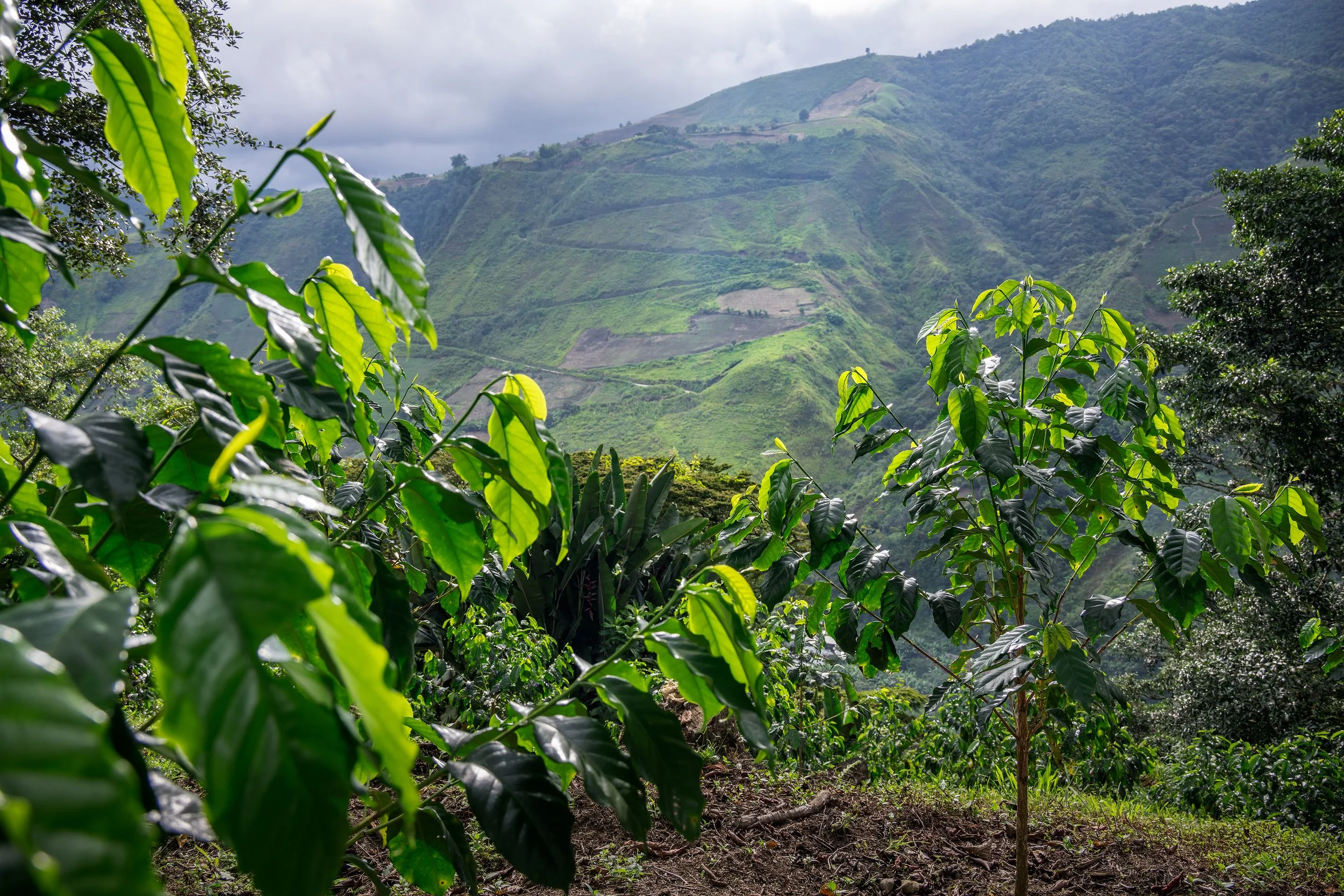
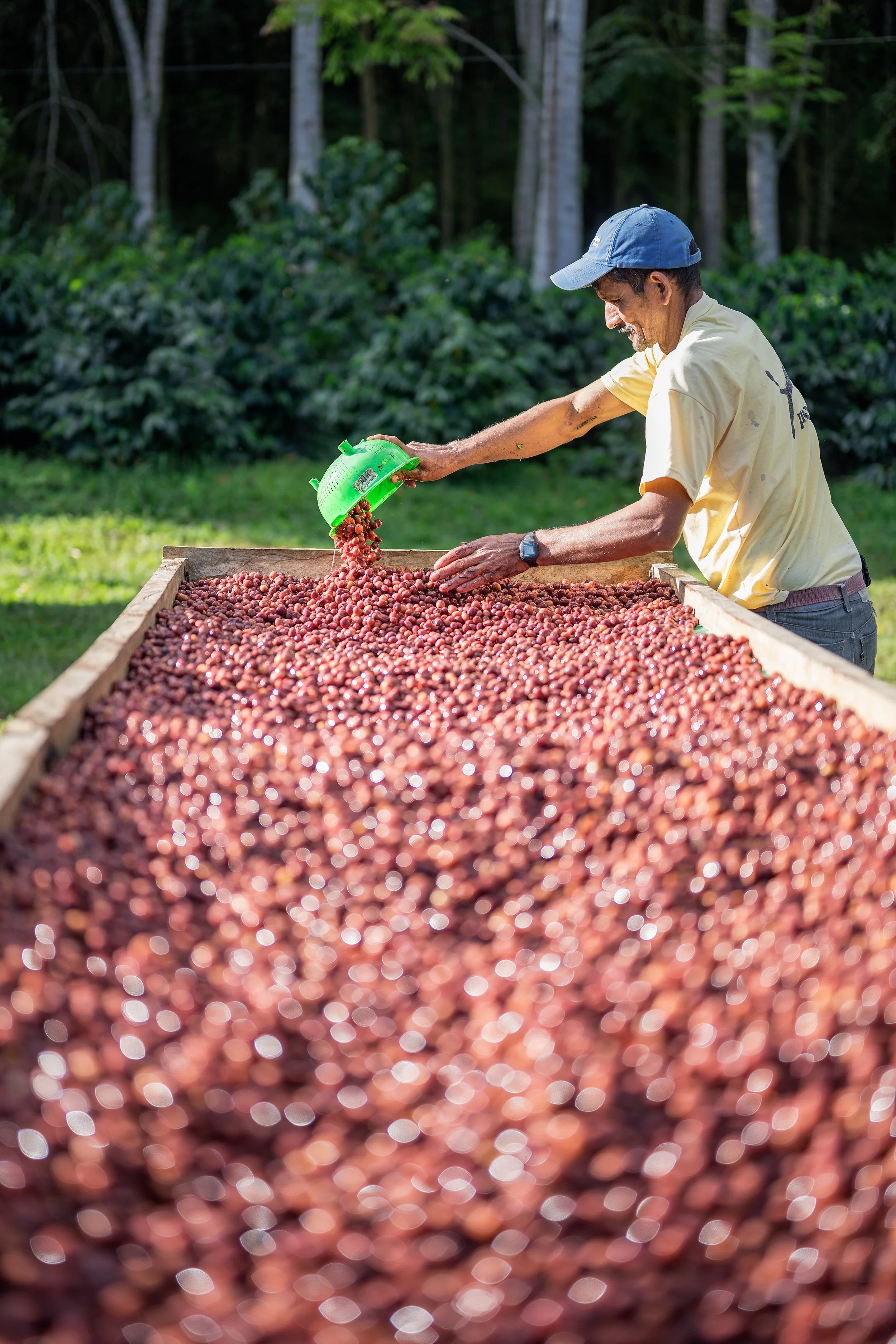
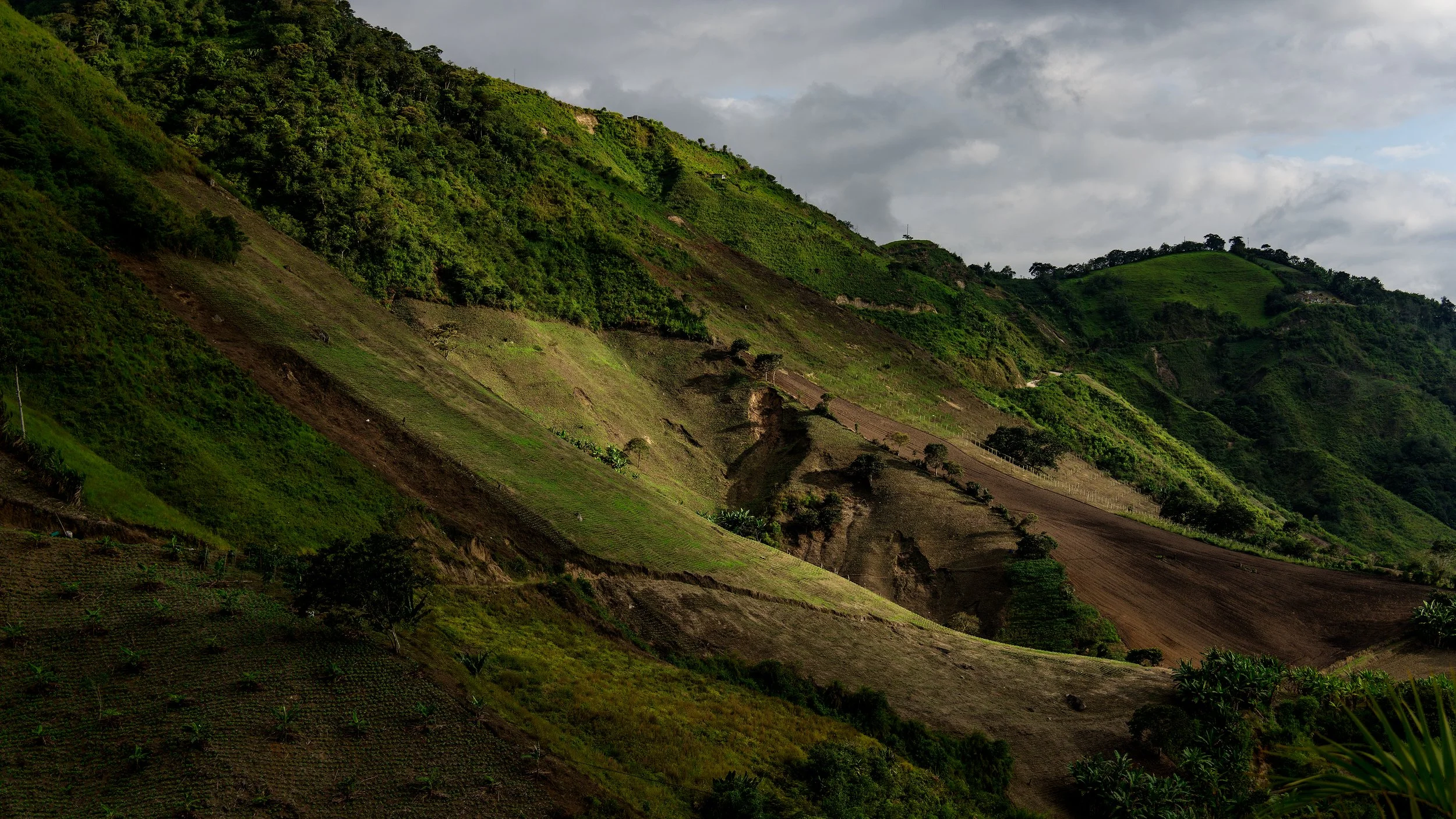
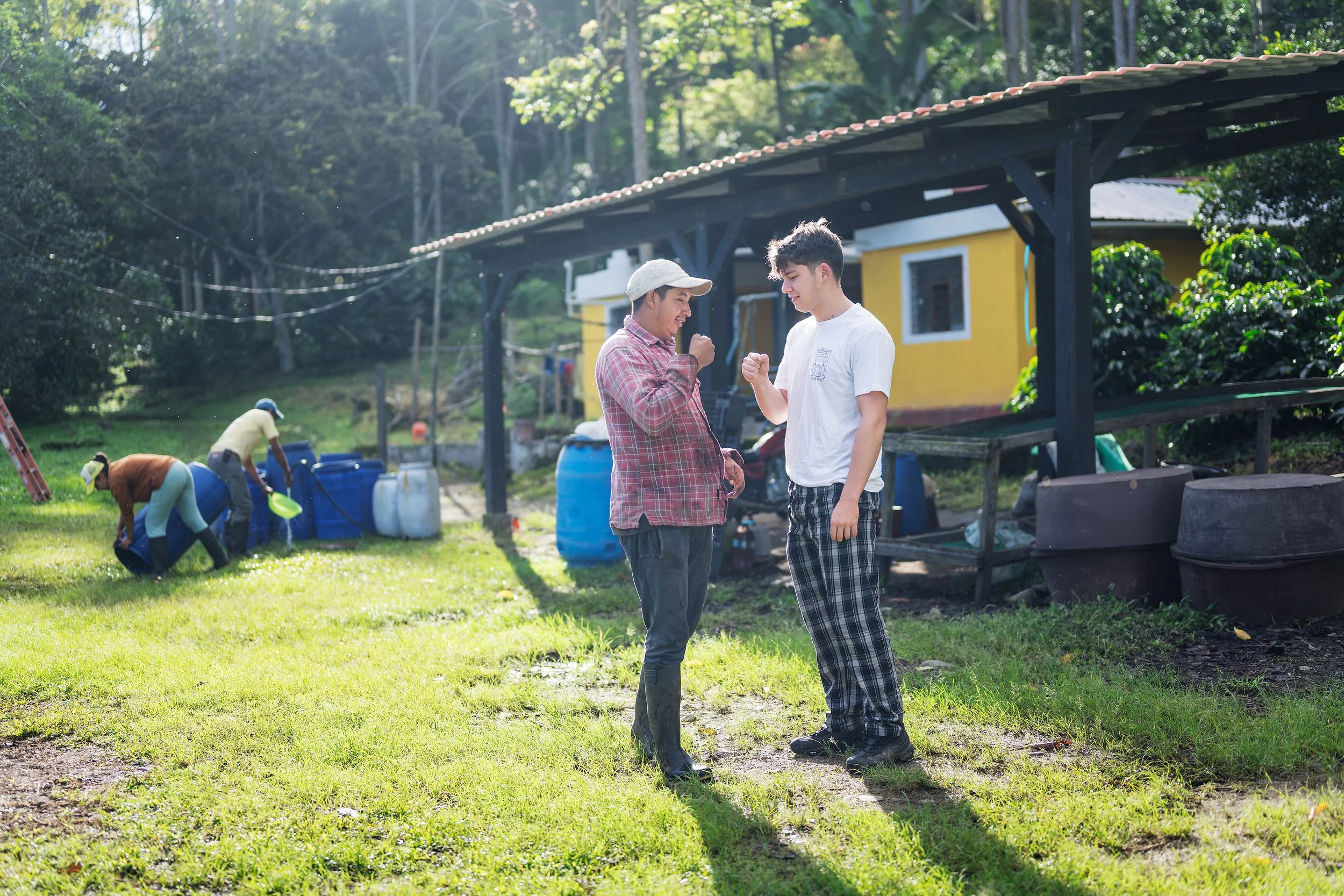
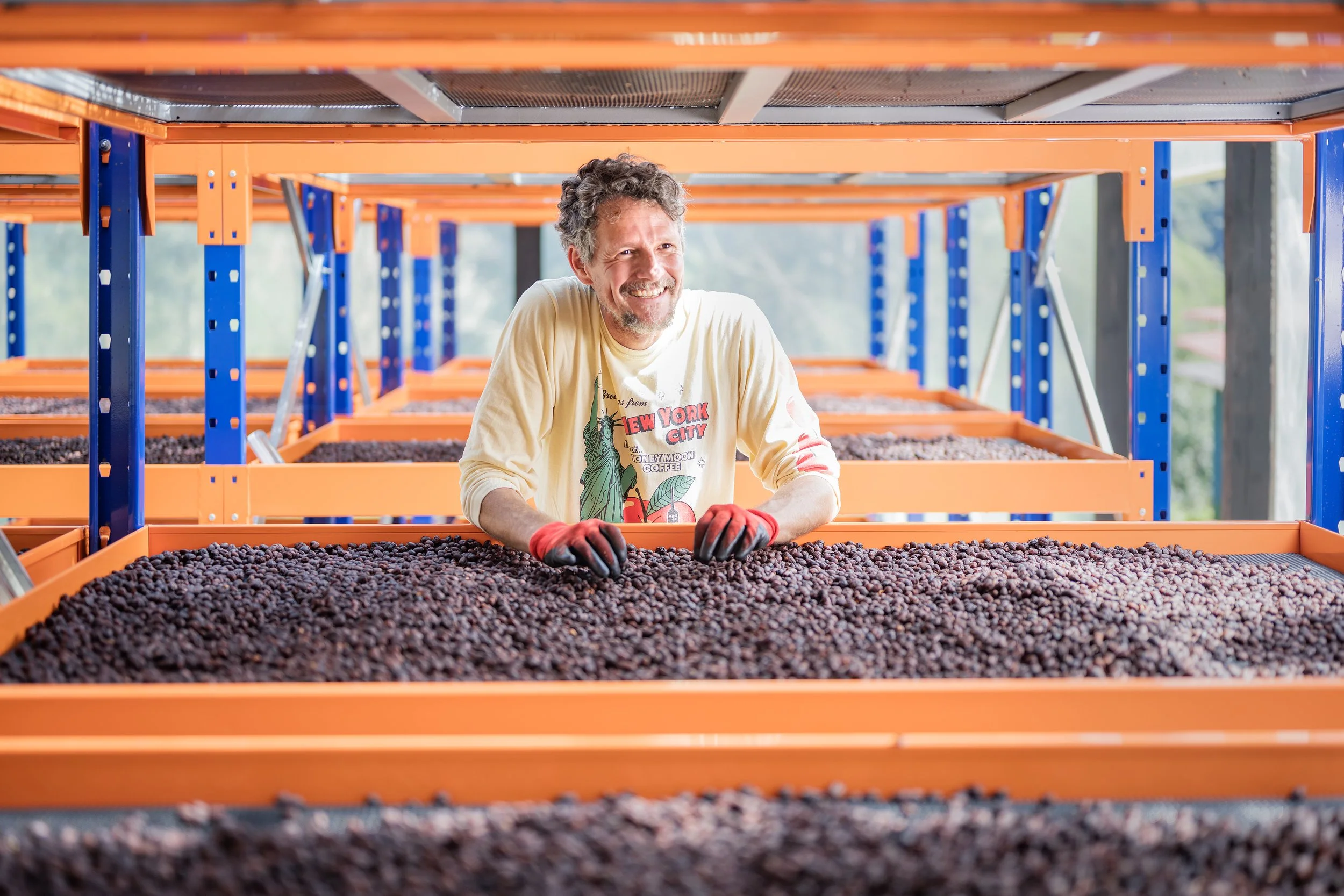
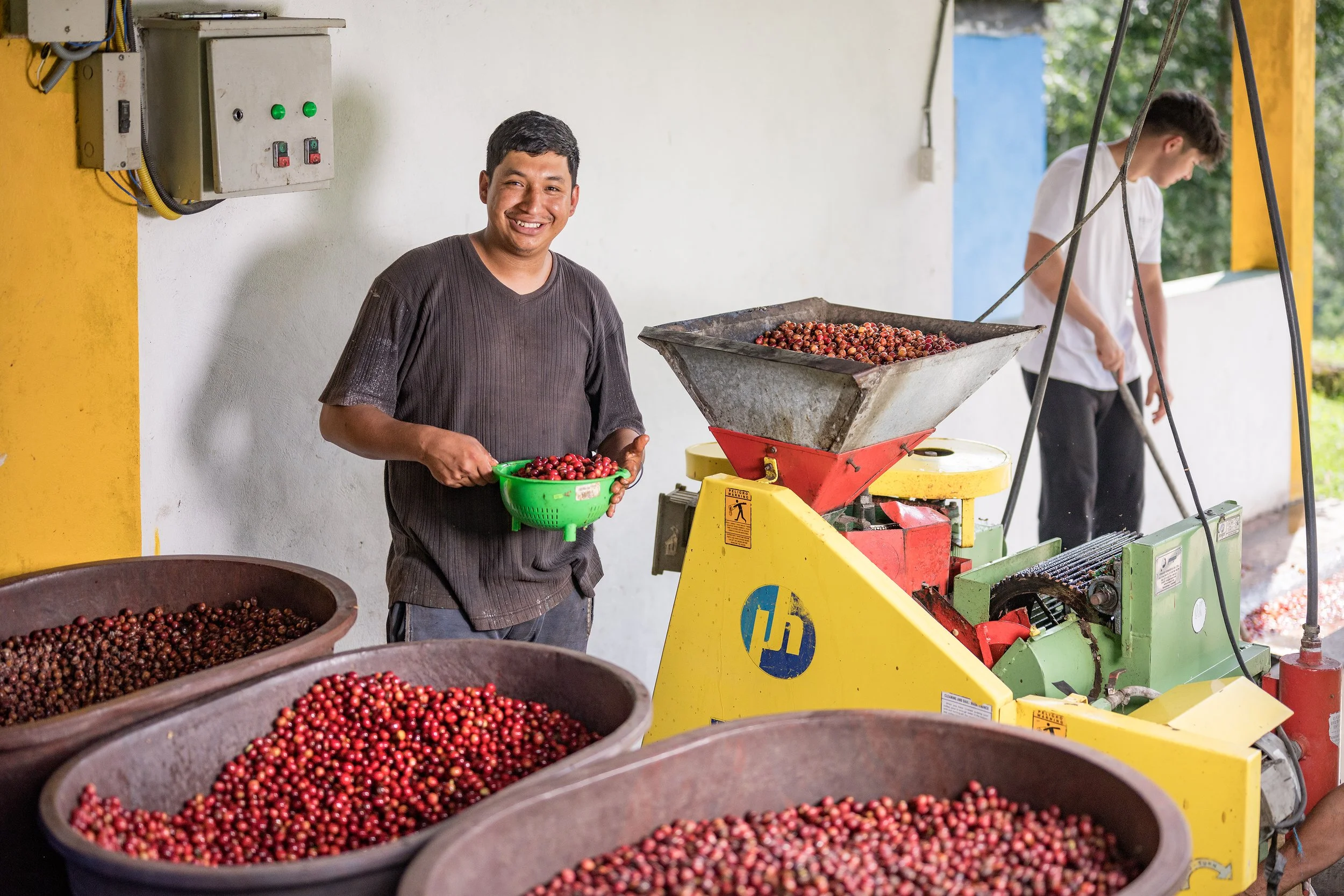
Finca Soledad - Pepe Jijon
Farm name: Finca Soledad
Producer: Jose “Pepe” Jijon
Region: Intag, Imbabura
Elevation: 1515MASL
Varietals: gesha, sidra, typica mejorado
Processes: anaerobic washed, cold ferment, dark room drying, natural, oxidator, washed, wave washed
Finca Santa Rosa - Galo Semblantes
Farm name: Finca Santa Rosa
Producer: Galo Semblantes
Region: Intag, Ecuador
Elevation: 1800MASL
Varietals: Typica Mejorado
Processes: Washed, wet fermented, dry fermented
From Honey Moon Coffee:
Located at 1,800 meters above sea level in the Imbabura Province of Ecuador is the otherworldly Finca Santa Rosa. After hand-selection and disinfection, Santa Rosa's coffee is wet cherry-fermented for 24 hours before being de-pulped and dry fermented for 1-2 days. What this lengthy, delicate process produces is a truly cosmic, single-origin bean noted for its incredibly sweet notes of cacao and its unparalleled lightness of being.
Finca Terrazas del Pisque - Arnaud Causse
Farm name: Finca Terrazas del Pisque
Producer: Arnaud Causse
Region: Pedro Moncayo, Pichincha
Elevation: 2100MASL
Varietals: caturra, pacamara, yellow caturra
Processes: anaerobic washed, washed
From Cafe Imports:
Finca Terrazas del Pisque is a 38-hectare farm of which 15 hectares are planted in coffee, the other available land is used for growing avocados and citrus fruits. Located in Ecuador's Pichincha region, this farm boasts an annual production of almost 15,000 kg of specialty coffee a year. In this area of Ecuador, harvest happens nearly year-round and only the ripest cherries are selected for processing. Once picked, cherries are processed as Washed or Naturals, and sometimes fermented Anaerobically first.
For washed lots, cherries are depulped, fermented for 36 hours, washed, and dried on raised beds for an average of 12 days.
For natural lots, cherries are sorted and placed directly on raised beds and dried for an average of 28-40 days.
For anaerobic lots, cherries are placed in a sealed environment and anaerobically fermented under controlled conditions before being placed on raised beds and finished using the natural drying process for an average of 28-40 days.
From Twin Peaks coffee:
Terrazas del Pisque is a 38-hectare farm in the Pichincha region of Ecuador near the town of Pedro Moncayo. 15 hectares are used for growing coffee and the other available land is used for growing avocados and citrus fruits. The farm sits at the super high elevation of 2100 masl and is owned and managed by Arnaud Causse. Native shade trees, beehives and nitrogen fixing plants have been grown throughout to maintain a natural ecosystem and eliminate using pesticides and fertilizers. Arnaud's extensive agronomy experience with coffee is remarkable. After growing up in France, he declined his compulsory military service and so instead had to work on a coffee farm in Gabon. Arnaud spent many years working on coffee projects in Ethiopia and Rwanda before finding himself in the Dominican Republic, El Salvador, then to Costa Rica and eventually landing in Ecuador.
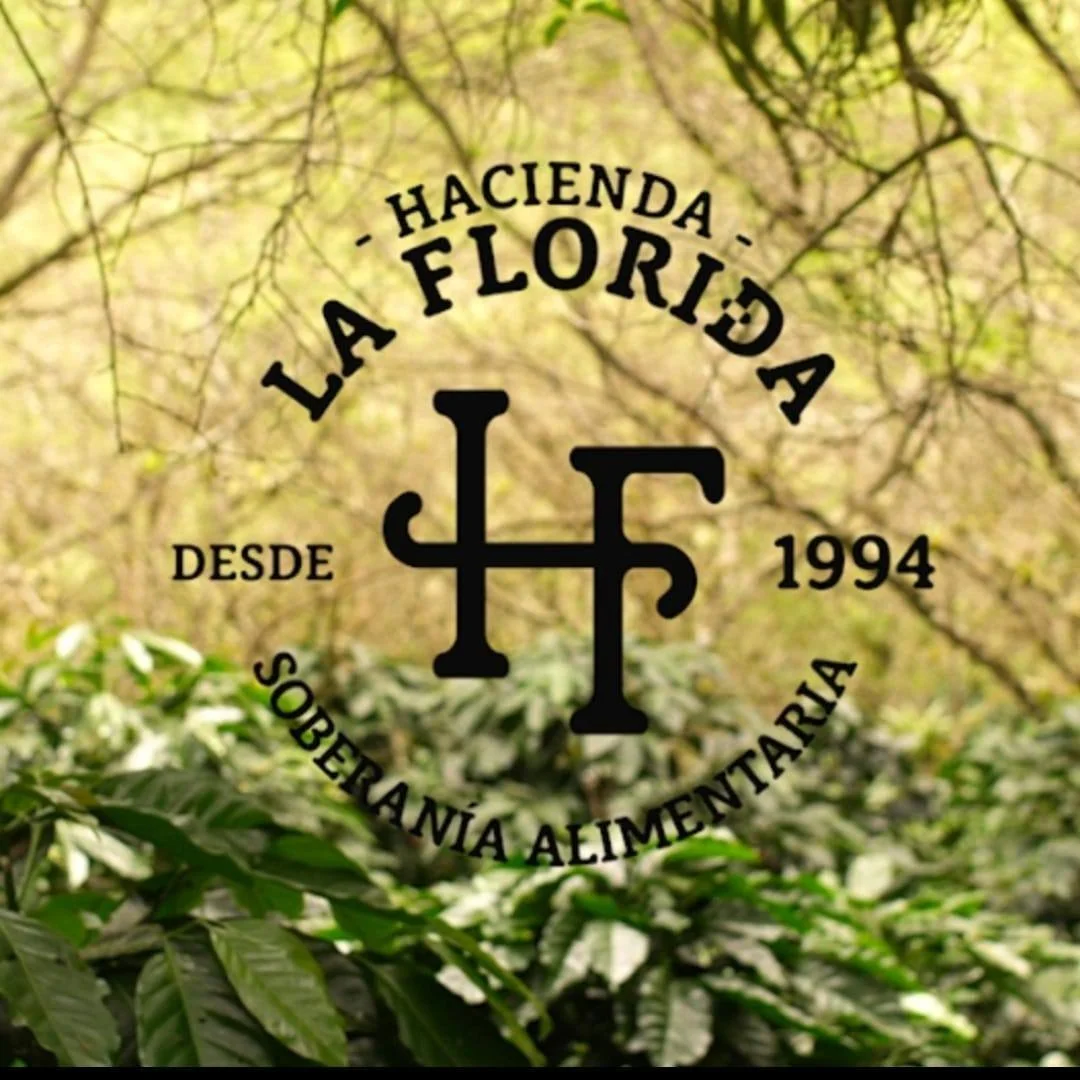
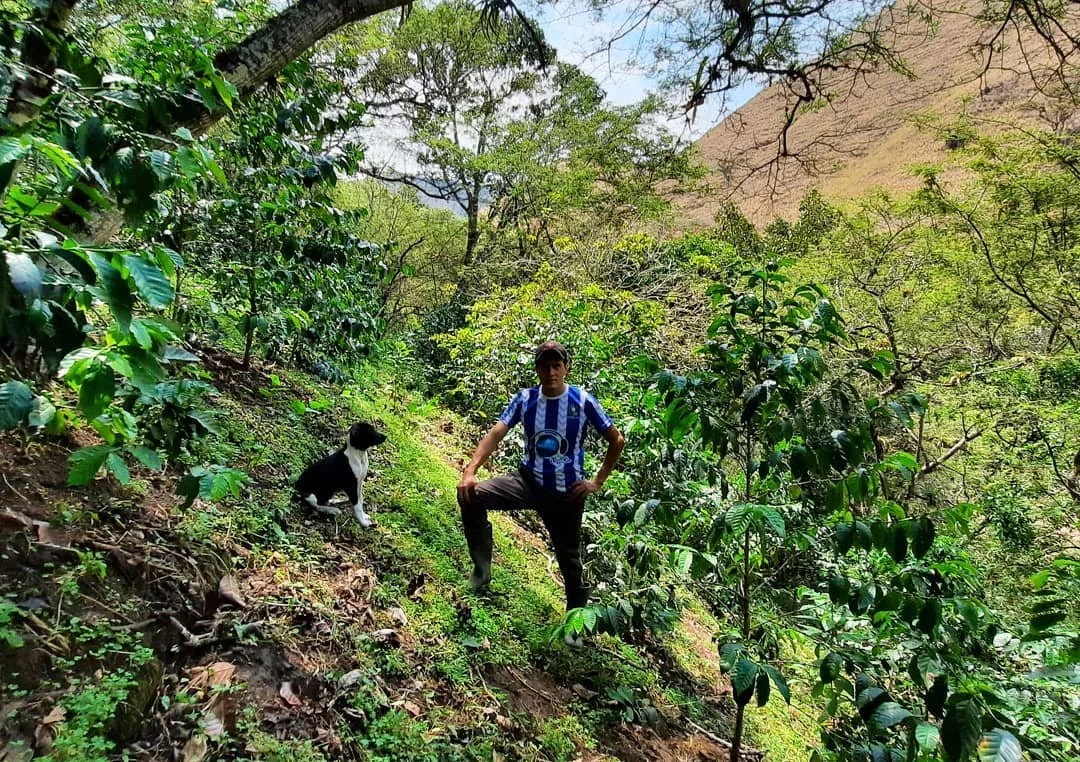

Hacienda La Florida - Fabricio and Ramiro Coronel Pilco
Farm name: Hacienda La Florida
Producer: Fabricio and Ramiro Coronel Pilco
Region: Loja, Ecuador
Elevation: 1550MASL
Varietals: catucai
Processes: carbonic maceration washed
From Nomad:
The Hacienda La Florida farm, managed by the Coronel family, is located in Ecuador, specifically in the Loja region, which is known for its ideal altitude and favourable climatic conditions for growing quality coffee. The Coronel family combines traditional cultivation with modern, sustainable methods and care for the environment. They pride themselves not only on their exceptional coffee, but also on their respect for nature, growing sugar cane, fruit, vegetables and raising animals in agroforestry.
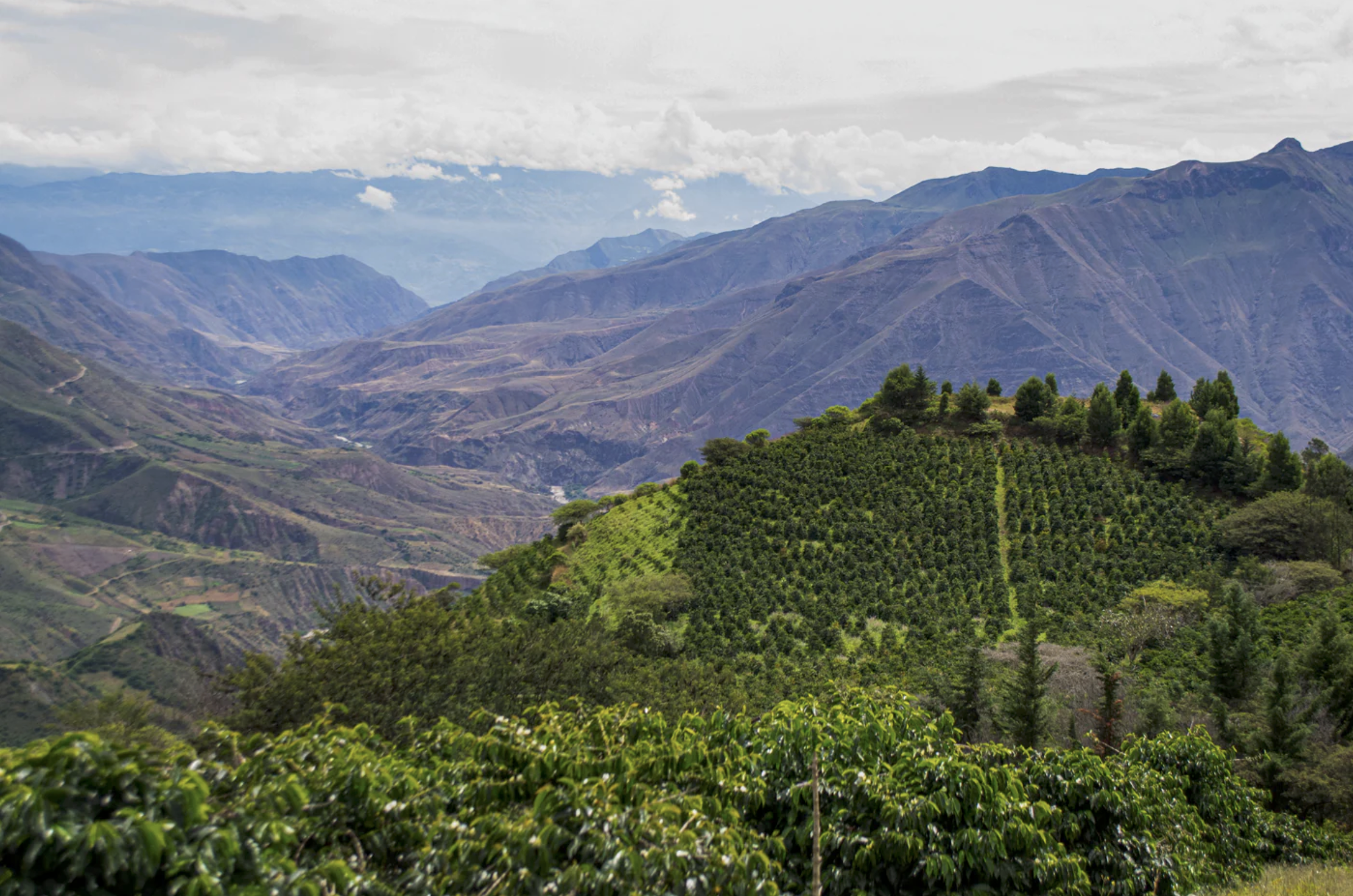
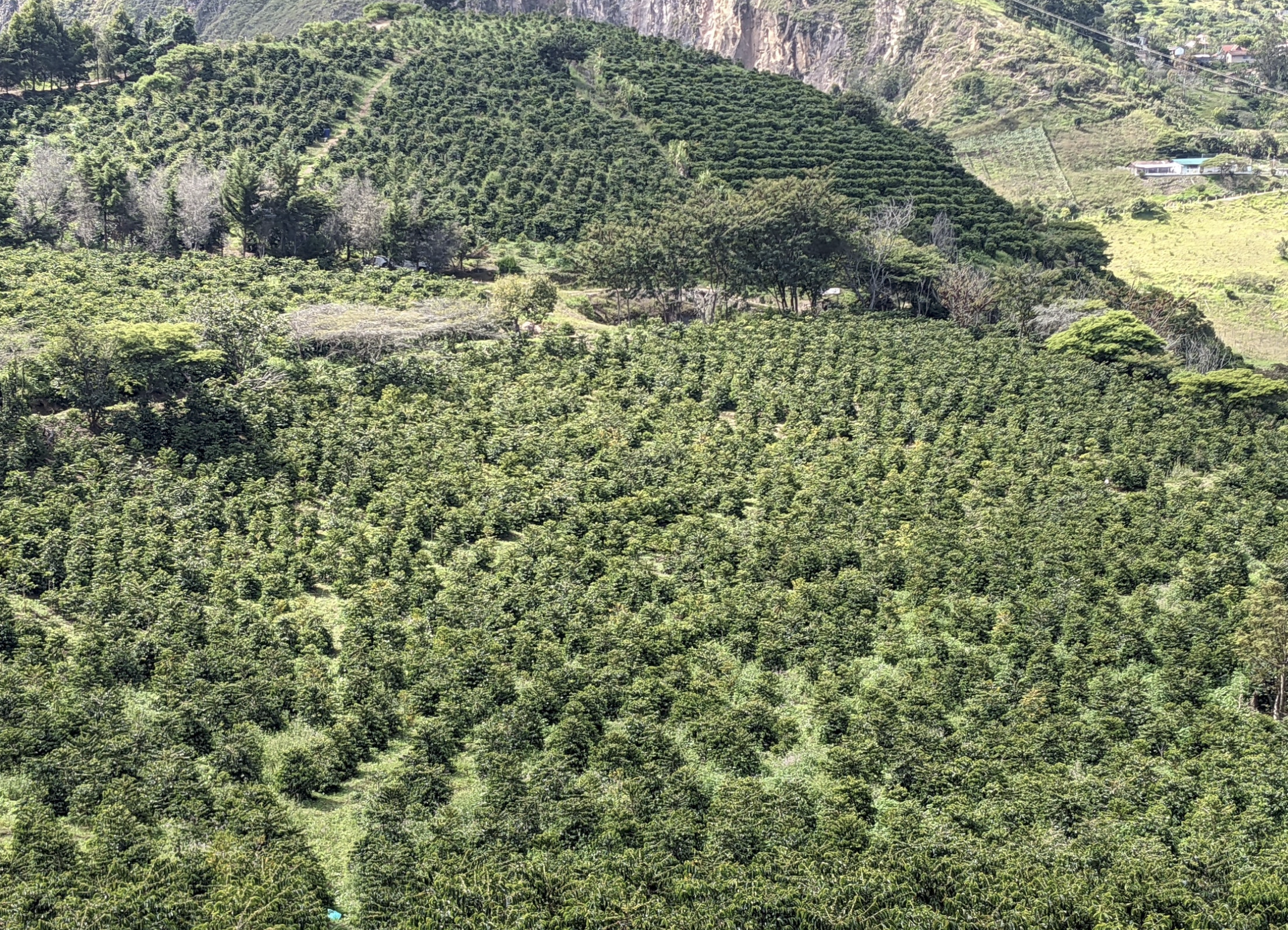
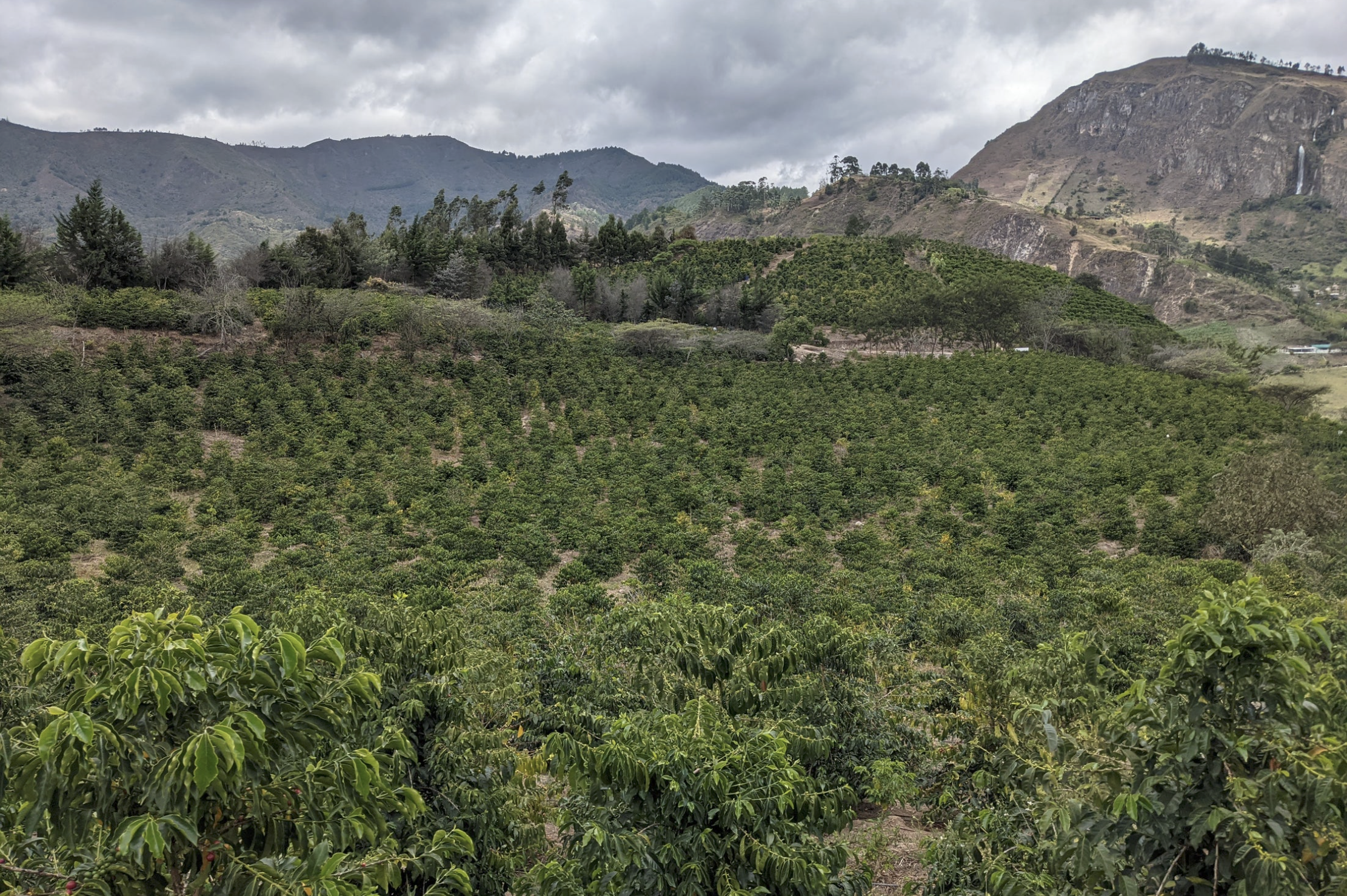
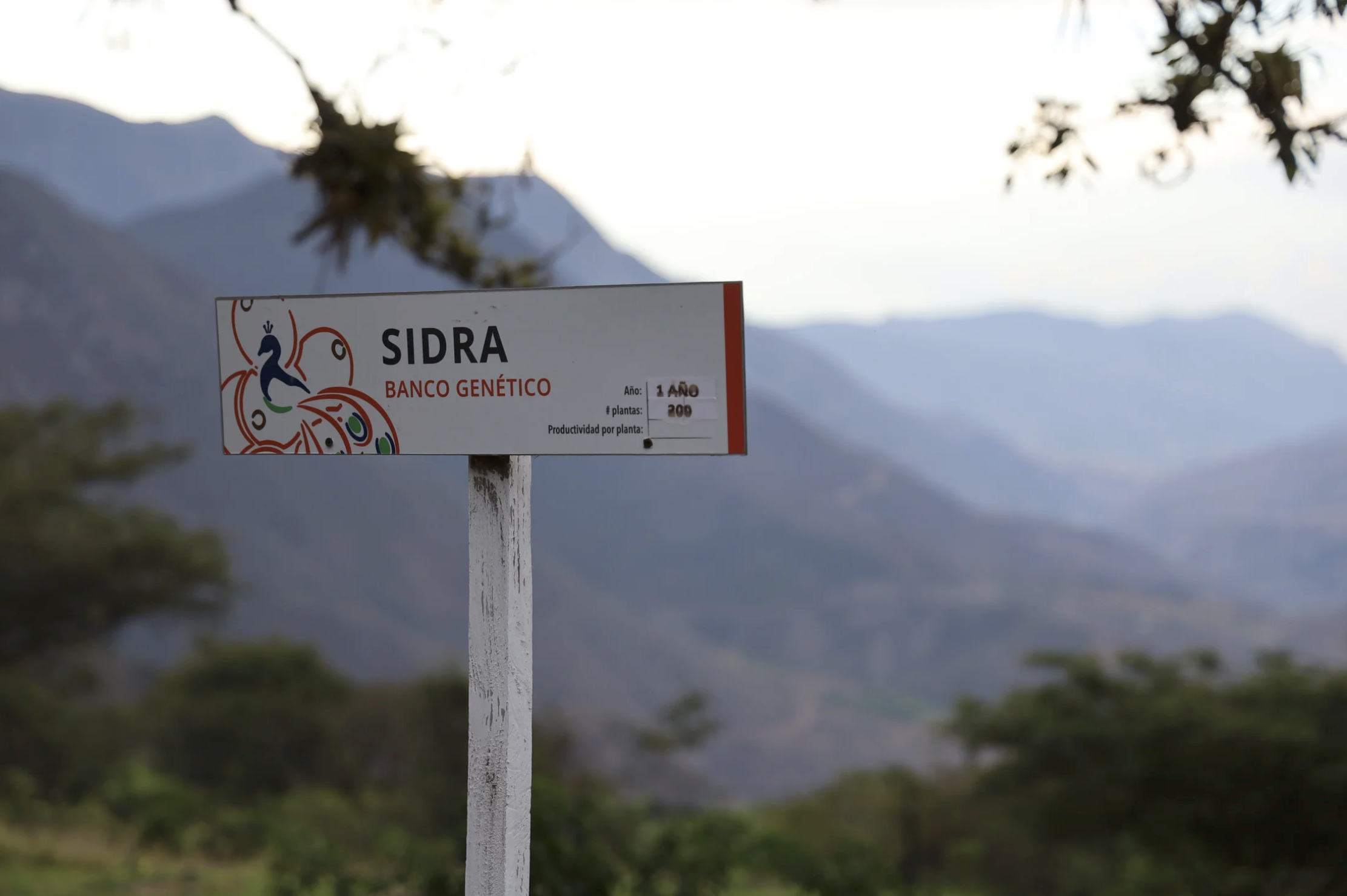
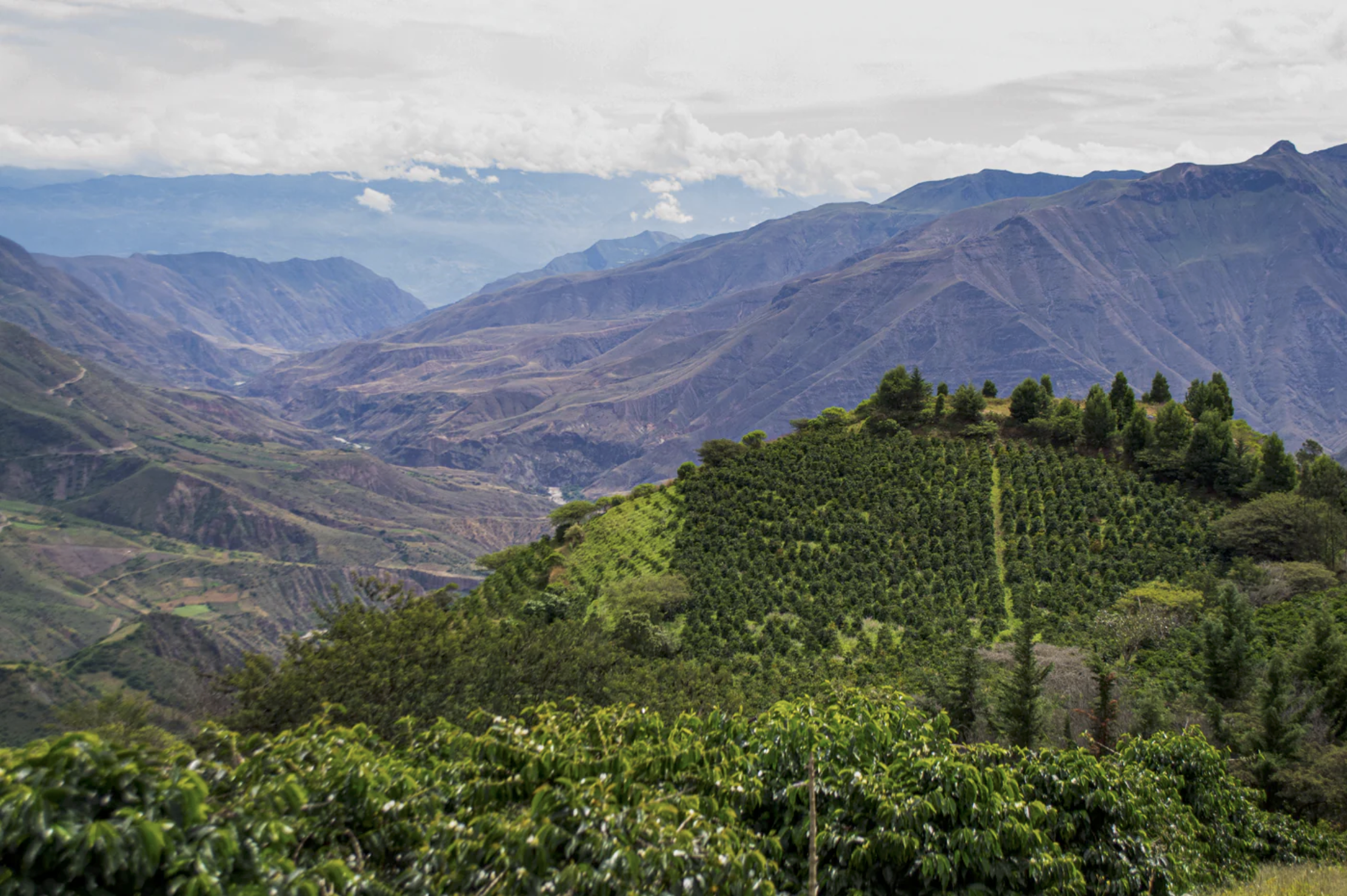
Hacienda La Papaya - Juan Peña
Farm name: Hacienda La Papaya
Producer: Juan Peña
Region: San Lorenzo, Saraguro, Loja
Elevation: 2000MASL
Varietals: B7, sidra, typica, typica mejorado
Processes: anaerobic natural, natural, oak barrel natural, washed, yeast washed
From Hydrangea:
Hacienda La Papaya is owned and operated by Juan Peña, one of Ecuador's most famous specialty coffee producers. He has been recognized for many top producer awards in Ecuador and throughout the World. His coffee has also been utilized in many Barista Competitions.
Juan grows many varieties of coffee at Hacienda La Papaya, most notably Typica, Sidra, Gesha, with others also in production. He is always actively engaged with processing experiments and tries to find the next best practice or method to make improvements to the coffee he produces. With the support of Segundo Cartuche, the team leader for wet processing and coffee drying, Hacienda La Papaya is able to introduce scientific, refined practices and measurements into their production.
Juan is an active member of his community, allowing neighbours to utilize his facilities, such as the nursery and the micro-mill, to help the overall sector of La Papaya grow and develop. Segundo Cartuche is an example of this, with his own plot of land and his own production, via the support of Hacienda La Papaya.
The coffees produced at Hacienda La Papaya are the result of a meticulous integral process, beginning with the genetics of the seeds in the nursery and knowing the mother plants. Every year the farm experiments with various controlled fermentation and drying, creating some really exquisite flavors in the cup.
From Corvus:
Juan Peña is a trailblazer who has transformed Ecuador’s coffee industry from a minor player into a prominent global contender. Renowned for his scientific approach, Peña’s innovative techniques and meticulous data collection at Hacienda La Papaya have redefined coffee production. His use of diverse processing methods and dedication to understanding crop dynamics have turned his farm into a powerhouse of coffee knowledge, setting new benchmarks for producers worldwide.
Starting his career in commercial rose growing, Peña brought the same precision and expertise to the world of coffee. His efforts have not only elevated Ecuador’s position in the specialty coffee scene but have also resulted in some of our most cherished South American coffees. Juan Peña’s visionary work and relentless commitment continue to shape the future of coffee, making him a true force in the industry.
From La Cabra:
Hacienda La Papaya is located just outside the town of Saraguro, in the Loja region of Southern Ecuador. The Hacienda has been in Juan’s family since the end of colonial rule, and is a place that holds great importance for the whole family, having spent their summers there since they were children. Juan began to experiment with coffee here in 2010, and moved to work in coffee full time in 2014 after his rose crop was wiped out by a violent storm in Cuenca. Over the intervening years he has thrown himself into the pursuit of high quality coffee, with a meticulous and scientific approach.
This approach, shaped by Juan’s experience in roses and his training as an agricultural engineer, has led to an astronomic rise to high quality and international recognition, over just 8 years. His obsessive experimentation and need for scientific evidence is a cornerstone of his work at each stage, from carefully applied and monitored fertilisation, constant measurement of brix and cherry weight during harvest, innovation in careful fermentation, to the exacting drying process. Juan’s work in each of these fields is truly some of the most meticulous and effective we have seen in our years of travelling for coffee, and we left the Hacienda in awe.
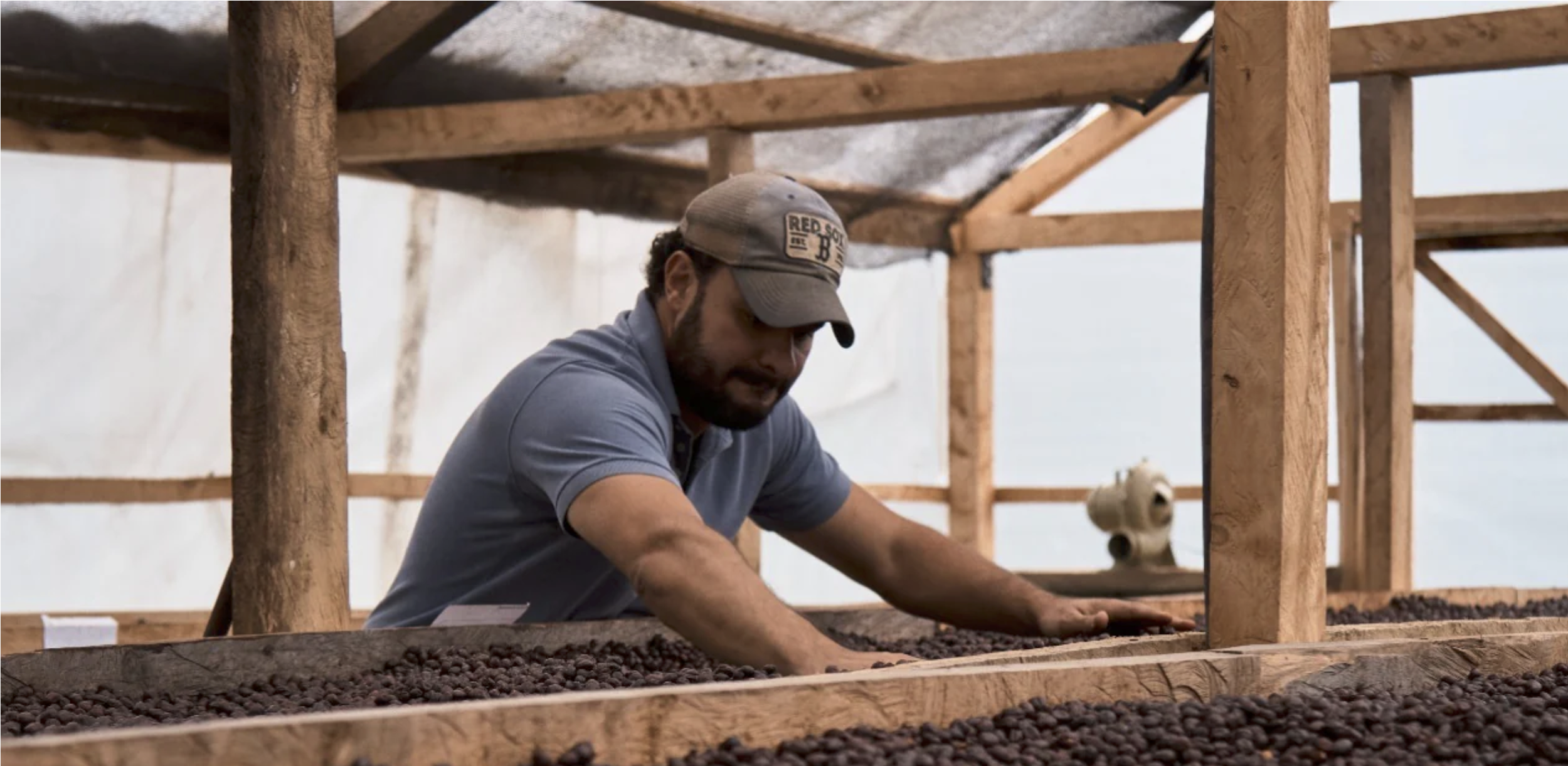
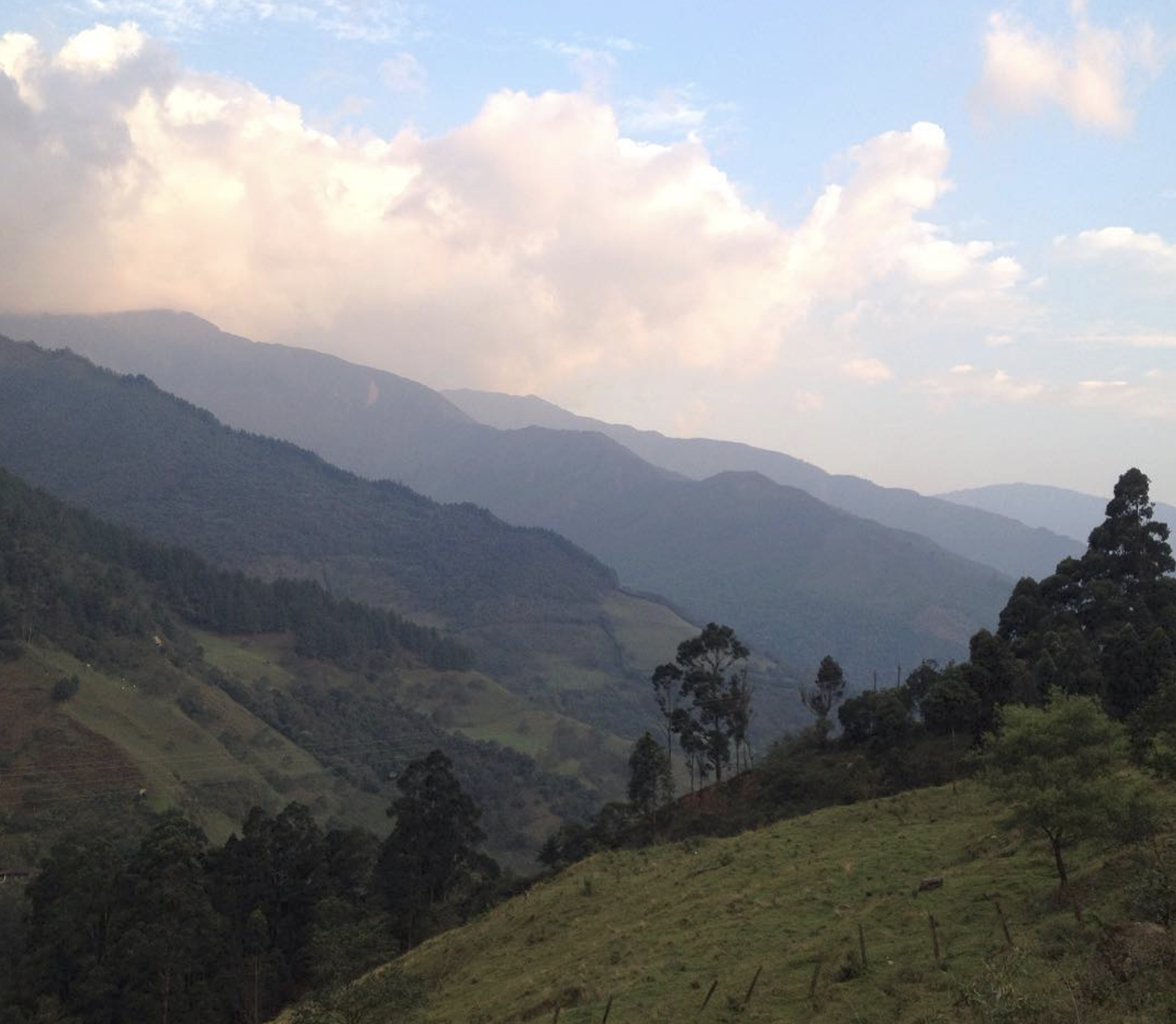
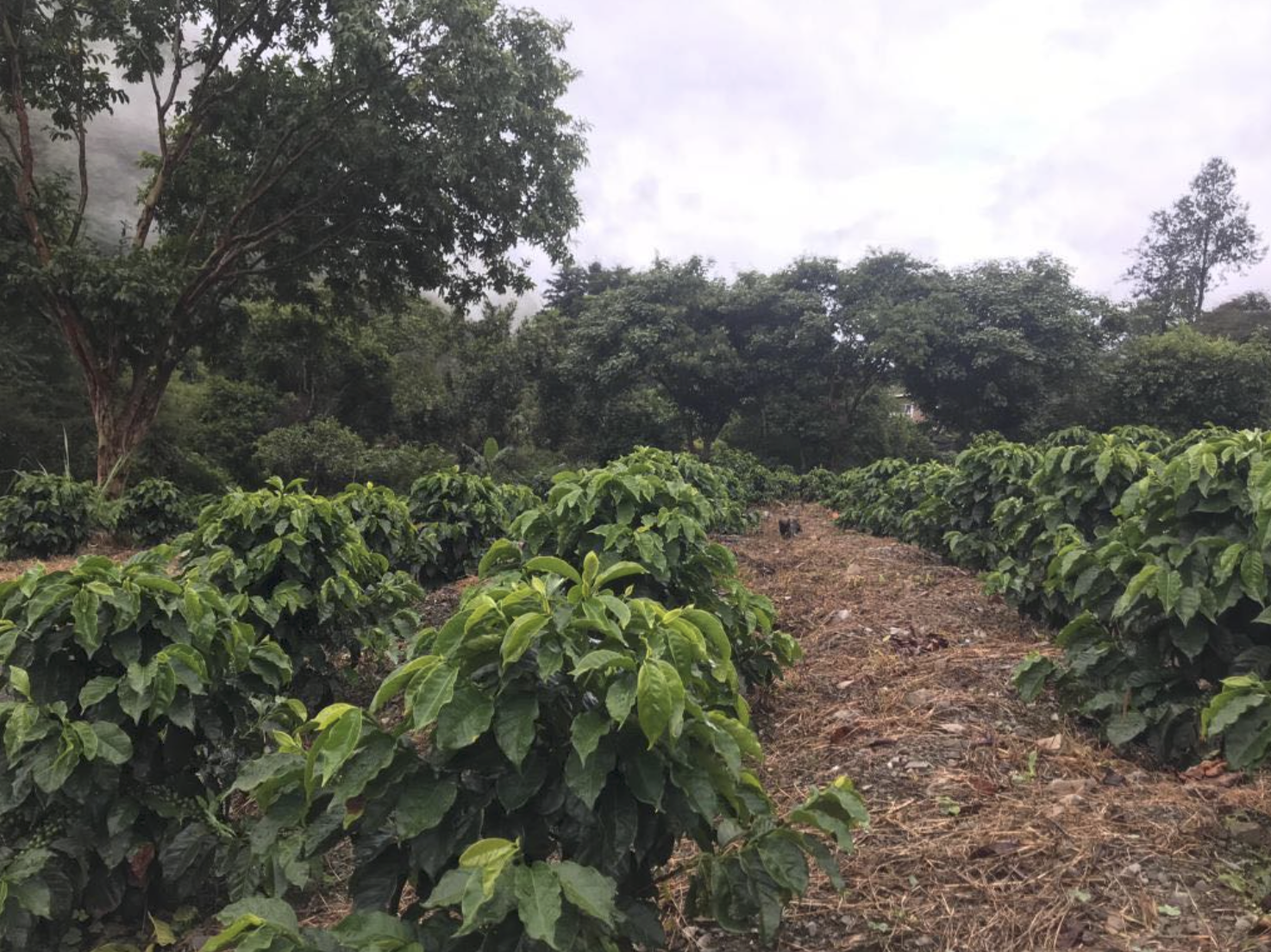
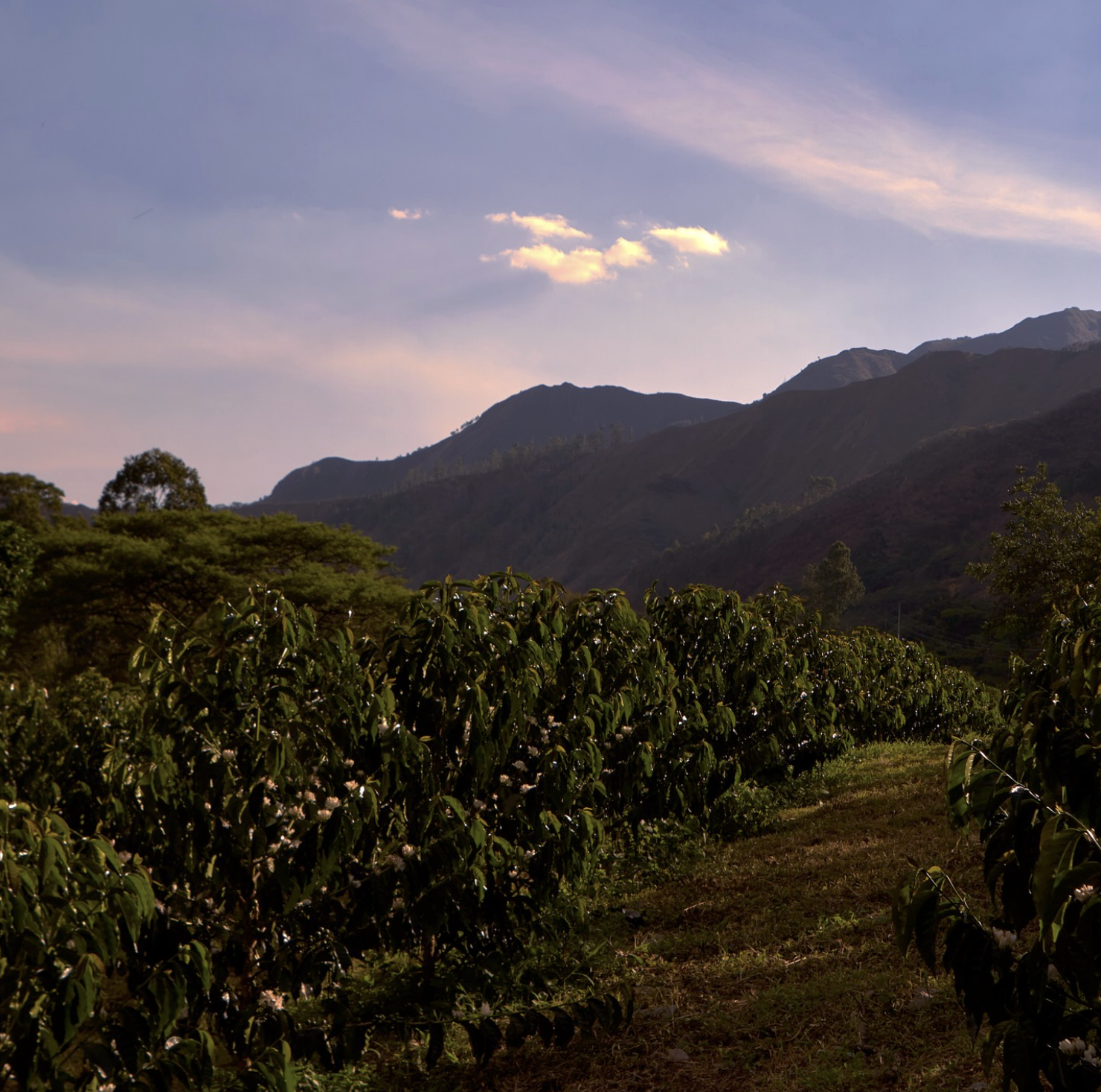
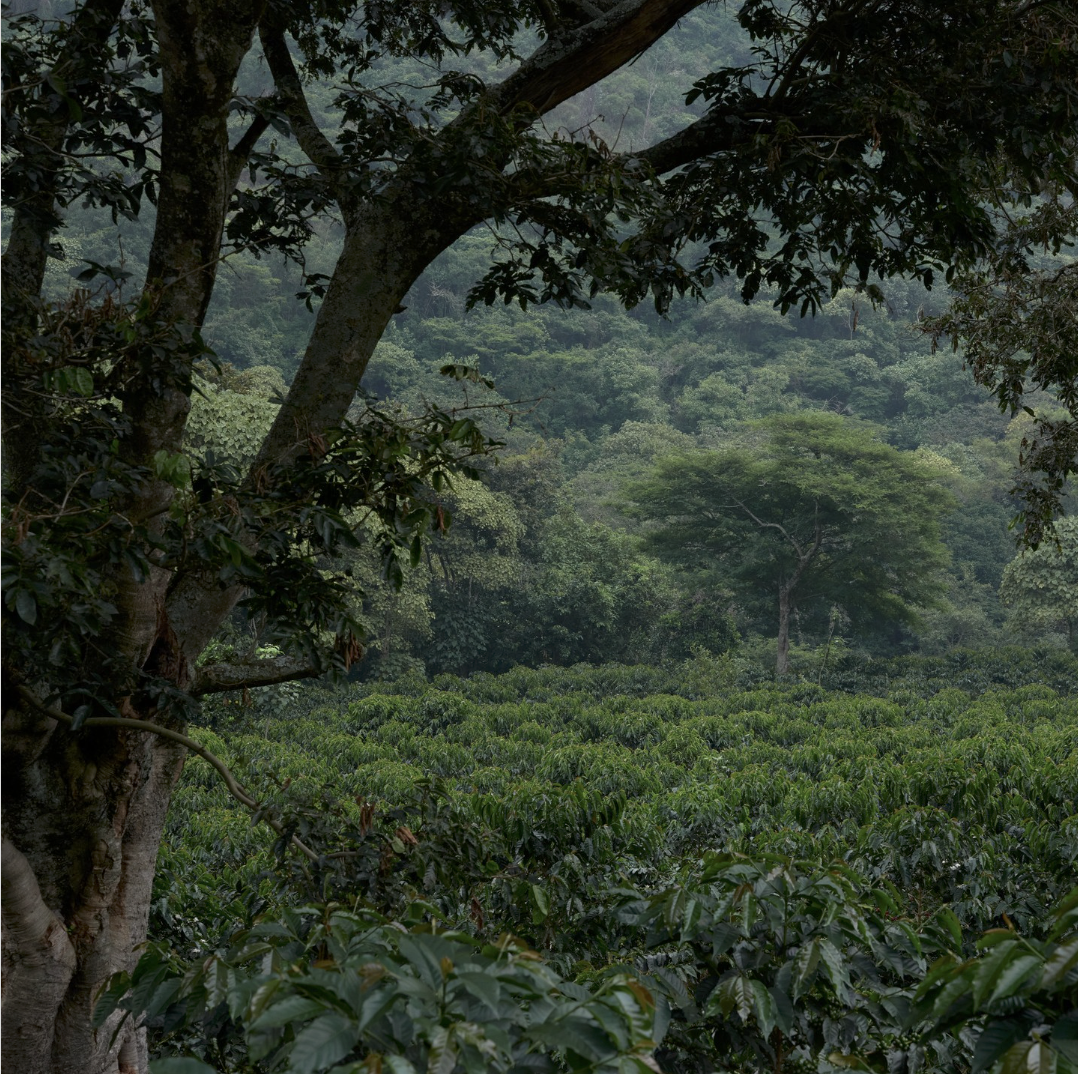
Hacienda Santa Gertrudis - José Luis Eguiguren
Farm name: Hacienda Santa Gertrudis
Producer: José Luis Eguiguren
Region: Loja
Elevation: 1600 - 1720 MASL
Varietals: Gesha, SL28, typica mejorado
Processes: honey, natural
From Rose:
Hacienda Santa Gertrudis is relatively new to the specialty coffee game in Ecuador - having a strong history in coffee, but less focus on quality. This is something Jose Luis is changing in big leaps.
The farm is located just outside of Loja, near Vilcabamba, in the south east of Ecuador. The climate here is very helpful to growing great coffee, being quite warm in summer, and having predictable rainfalls, which helps both growing, and drying of the coffees.
Jose Luis is brilliant at the work he does at the farm - and started off by planting several different varieties, including Caturra, SL28, Bourbon, Sidra, and Geisha all over his land. He has spent a lot of effort in systematically improving his processing, and has it really under control.
From Paga coffee:
Hacienda Santa Gertrudis has been growing coffee since 1954 and over the years the Eguiguren family wanted to be part of this love for coffee. They planted new varieties in 1980 and however, commercial coffee commercialization was not profitable. Since 2017 until today, Jose Luis Eguiguren, the third generation of coffee producer at Hacienda Santa Gertrudis, is focused exclusively on specialty coffee. The entire farm sits on 60 hectares of land, of which 9 are currently planted with coffee. The varieties include Sidra, Geisha, SL28, Typica Mejorado, Catuai and Caturra.
La Noria - Tim Leahy and Bernard Uhe
Farm name: Finca Terrazas del Pisque
Producer: Arnaud Causse
Region: Pedro Moncayo, Pichincha
Elevation: 2100MASL
Varietals: caturra, pacamara, yellow caturra
Processes: anaerobic washed, washed
From Moonwake:
Finca Terrazas del Pisque is a 38-hectare farm of which 15 hectares are planted in coffee, the other available land is used for growing avocados and citrus fruits. Located in Ecuador's Pichincha region, this farm boasts an annual production of almost 15,000 kg of specialty coffee a year. In this area of Ecuador, harvest happens nearly year-round and only the ripest cherries are selected for processing. Once picked, cherries are processed as Washed or Naturals, and sometimes fermented Anaerobically first.
For washed lots, cherries are depulped, fermented for 36 hours, washed, and dried on raised beds for an average of 12 days.
For natural lots, cherries are sorted and placed directly on raised beds and dried for an average of 28-40 days.
For anaerobic lots, cherries are placed in a sealed environment and anaerobically fermented under controlled conditions before being placed on raised beds and finished using the natural drying process for an average of 28-40 days.
From Twin Peaks coffee:
Terrazas del Pisque is a 38-hectare farm in the Pichincha region of Ecuador near the town of Pedro Moncayo. 15 hectares are used for growing coffee and the other available land is used for growing avocados and citrus fruits. The farm sits at the super high elevation of 2100 masl and is owned and managed by Arnaud Causse. Native shade trees, beehives and nitrogen fixing plants have been grown throughout to maintain a natural ecosystem and eliminate using pesticides and fertilizers. Arnaud's extensive agronomy experience with coffee is remarkable. After growing up in France, he declined his compulsory military service and so instead had to work on a coffee farm in Gabon. Arnaud spent many years working on coffee projects in Ethiopia and Rwanda before finding himself in the Dominican Republic, El Salvador, then to Costa Rica and eventually landing in Ecuador.

